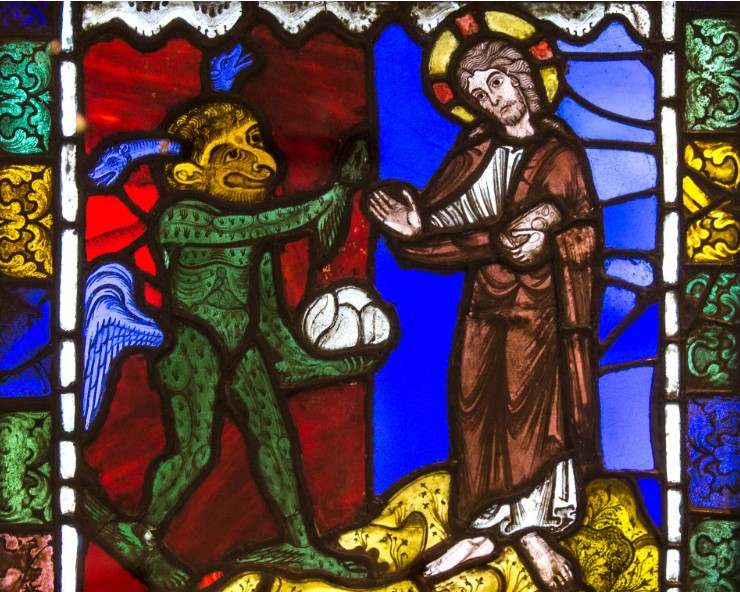|
|

To Tremble with Glee
This Sunday's Reflection - December 31, 2023
Get it in PDF form with calendar

The Cherry Tree Carol has roots in medieval mystery plays and, ultimately, an apocryphal story about the journey of Mary and Joseph to Bethlehem, in which a cherry tree bows low so that Mary can gather cherries from its branches. The carol has many variants, both in text and tune. Many Anglicans will be familiar with the arrangement by David Wilcocks. The Cherry Tree Carol I know and love is an Appalachian folk version by Alice Parker and Robert Shaw. This version, uniquely, ends with Joseph asking the unborn Jesus when his birthday will be, with Jesus responding, from his mother’s womb, thus:
The sixth day of January
My birthday will be,
When the stars in the elements
Shall tremble with glee.
“When the stars in the elements shall tremble with glee.” It is a striking image, isn’t it? Stars, like little children, trembling with glee. They can hardly contain their excitement, their little bodies move and pulse with joy. And it is this image — of the stars trembling with glee at the birth of the Lord Jesus — that has prompted these reflections, which I offer on the Tenth Day of Christmas.
“The stars in the elements shall tremble with glee.” We are not accustomed to thinking of stars in this way. Views from the Webb Space Telescope may fill us with awe, but we do not imagine the stars as capable of anything analogous. But what, really, do we know of the stars? They, too, are creatures — why should they not “tremble with glee” at the Nativity of their Lord, or respond in some analogously appropriate way? After all, when the Lord laid the foundations of the earth, “the morning stars sang together, and all the sons of God shouted for joy” (Job 38:7). And day and night “the heavens declare the glory of God,”
Although they have no words or language,
and their voices are not heard,
Their sound has gone out into all lands,
and their message to the ends of the world.
(Ps. 19:1, 3–4)
Must we understand all this language to be merely figurative?
Dante spoke of “the Love that moves the sun and the other stars” (Paradiso 33.145). In speaking thus, he included himself among the creatures moved by the Lord. He wrote:
… my desire and will were moved already —
like a wheel revolving uniformly — by
the Love that moves the sun and the other stars.
(Par. 33.143–45)
If our very desires and our wills are moved by the God who is Love, then why should we imagine the movement Love causes in the stars to be constrained to movements describable by astrophysics? Is it only human creatures who cry out, in the presence of that Love, “did not our hearts burn within us” (Luke 24:32)? Might not the stars, too, burn for Love?
David Bentley Hart has written in his dreamlike Roland in Moonlight (reviewed on Covenant) of a longing “for a world that speaks,” “for a world that feels … that’s conscious and alive” (p. 53). In context, Hart — or, rather, his dog Roland (did I mention the work is dreamlike?) — is describing his “great uncle” Aloysius’s pagan beliefs, which he interprets as a response to the modern view of the cosmos as dead matter. But I think we can also say (as Hart would surely agree) that the picture of “a world that speaks, a world that feels … that’s conscious and alive” — is one closely akin to that of the Bible. Holy Scripture, we have seen, understands the whole created order as revelatory, as filled with the glory of God; a world in which every creature is at least potentially responsive (in its own way) to its Creator. Night and day, “the heavens declare the glory of God.” “The morning stars sang together” at the creation of the world. The psalmist calls on every creature to rejoice in the coming of the Lord:
Let the heavens rejoice, and let the earth be glad;
let the sea thunder and all that is in it;
let the field be joyful and all that is therein.
Then shall all the trees of the wood shout for joy
before the LORD when he comes,
when he comes to judge the earth.
(Psalm 96:11–12)
In the biblical imagination, the world is full of the speech of non-human creatures. The serpent speaks. The angels speak. Balaam’s donkey protests (Num. 22:21–34). The mountains and the hills are on the verge of singing, and the trees of the fields about to burst into applause (Isa. 55:12). And, if necessary, even the stones will shout out, in praise of Christ their coming King (Luke 19:40). If this is so, might not the stars indeed tremble with glee at the birth of the Lord?
But what do we know of the stars? What matters in the end of these speculations is how we ourselves respond to the coming of our Lord. Whether we tremble before this magnum mysterium(“great mystery”) of the birth of the Lord. Whether our hearts burn within us.
Christopher Yoder
(The Rev. Christopher Yoder serves as rector of All Souls’ Episcopal Church in Oklahoma City. He is a contributor to Living Church’s Covenant blog. Fr. Carlos is on vacation this week.)
|
RETURN TO TOP
The Mystery That Is Now Disclosed
This Sunday's Reflection - December 24, 2023
Get it in PDF form with calendar

God’s incarnation appears to us Christians as one of the great mysteries of our faith. It is the great mystery of an infinite being—unconstrained by space or time, incomprehensible by the human mind—becoming a human being in the person of a vulnerable baby being born from a woman in the humblest of conditions, and ultimately giving Himself in loving sacrifice at the hands of unrighteous men, and suffering the cruelest form of death on a cross.
This is what theologians have called the kenosis, a Greek work meaning emptying. The idea is that in the act of incarnation God emptied Himself of His divine glory and came down to the level of humanity, being constrained by time and space, experiencing and suffering all that human beings suffer, and even dying in a brutally cruel way.
For many at the time of Jesus this was not only incomprehensible, but even blasphemous. To say that the divine could become human was not and is still not acceptable for the Jews (or the Muslims). In pagan religions there was the idea of the demigods, who were engendered by a divine being and a mortal human, but these were humans with some supernatural attributes, and were not seen as real incarnations of the divine.
But as great as this mystery of incarnation is, it does not seem to be the mystery that St. Paul refers to in his letter to the Romans, when he writes, “and the proclamation of Jesus Christ, according to the mystery that was kept secret for long ages but is now disclosed,…”
This mystery that Paul says was kept secret for long ages and is now disclosed is closely linked to Jesus’ proclamation itself, according to him. What may St. Paul be referring to?
It seems obvious that to know this, we need to focus our attention first and foremost in what Jesus’ proclamation was mainly about.
What Jesus spoke about and what his deeds pointed to during his time on this planet has to do with giving Himself in loving care for all. He never spoke or did anything for personal gain, not even to obtain personal fame or recognition. The signs of God’s Kingdom that He gave when he healed or brought someone back to life, or fed hungry multitudes, were all driven by a pure loving intention, and were all life-restoring and life-giving acts.
This is what his followers heard and saw Him do. This is what He taught, and if He ever had harsh words for some, it was not out of hatred for any particular person or group of persons, but to show them how wrong and conducive to real death their way was, so that they could change their ways and be saved.
What Jesus taught His disciples and what He also teaches us today, through the things His true followers wrote for all generations to follow, is that His incarnation of God’s loving will is also the aim and goal of our own lives.
God emptied Himself once of His divinity to show humanity, in the person of Jesus Christ, what the Way of His unconditional love is. But Jesus was restored to His original glory—the one He had always had with the Father—once His mission on earth was fulfilled.
In the same way, we need to empty ourselves—not of the divine glory we do not posses, but of the misleading self-centeredness that part of our human nature leads us to—so we can stop believing that we can be our own gods, and also rule over others to satisfy our whims. By so doing, we will be opening our minds and hearts to Christ’s Way of Love in our own lives, and then we will become one in intention and will with the only true and abundant life: the love-giving life that never ends.
When we celebrate God’s incarnation in a few days, let us be joyous, and grateful to God for His willingness to become Emmanuel—God with us, and let us also strive to make it possible that He may become incarnate in each of us—not literally like in the case of Mary, but in intention and will—so that ultimately one day He may become all in all, as has always been His desire from the beginning of creation.
Fr. Carlos Expósito, Rector
|
RETURN TO TOP
Do We Have Reasons to Rejoice?
This Sunday's Reflection - December 17, 2023
Get it in PDF form with calendar

Rose Sunday or Gaudete Sunday is here this week. It is the third Sunday of Advent, and the word rejoice or joy appears in all the readings assigned for this Sunday. The liturgical color also reminds us of the joyful expectation whose end—at least in the perspective of God made flesh in history—is drawing near as the Christmas celebration approaches.
But as we look at the world around us, the wars, the conflicts, the injustice, the lack of compassion, the hunger and poverty that plagues so many countries—and even close to home—the homeless and mentally derailed people who roam our own cities, we may wonder if we have reasons to rejoice.
Even if we are lucky enough to be among the well-to-do in this world, at this very moment we may have close relatives or friends undergoing painful diseases, or even dying.
The actual world we live in looks more like the world of Job after he was allowed by God to be tested by Satan than like God’s Kingdom of love and peace.
And we may wonder, was it much better for the prophet Isaiah, or for the Apostle Paul, or even the writer of the fourth gospel?
Definitely not.
The prophets never had a smooth time. They were slandered, misunderstood, and mistreated. They did not prophesy to have a more comfortable life, but because they could simply not keep silent when God called them to speak in His name.
We all know how much St. Paul had to suffer after he was called by our Lord to evangelize the Gentiles. He suffered slanders, whippings, shipwrecks, prison, and finally death for relentlessly announcing the truth of Jesus’ Way of Love.
John the Evangelist is believed to have died of a natural death, but even he was deported and confined to an island, and had to suffer much for spreading the Good News of Salvation to all the nations.
No, the world at the time of Isaiah, and at the time after Jesus’ ascension did not look like a rose bed—even if we call this Sunday “rose Sunday”. They were convoluted times, full of suffering people, oppressed people, people who had lost all hope. And yet, Isaiah and St. Paul rejoiced and encouraged their contemporaries to rejoice.
And do they tell us what is there to rejoice for? Certainly.
Isaiah speaks about the new creation that God is about to make. In this new creation there will be no more injustice, or people dying at a young age, and weeping and distress will be no more. It will be a creation which all creatures will live in harmony, and no creatures will hurt or destroy. The image Isaiah uses is one of great poetic beauty: “The wolf and the lamb shall feed together, the lion shall eat straw like the ox; but the serpent—its food shall be dust! They shall not hurt or destroy on all my holy mountain, says the Lord.”
Isaiah’s main reason for rejoicing is the sure hope of the new creation, so it has a future outlook, but the rejoicing is already a present reality.
St. Paul, however, sets the rejoicing in a present—or even an atemporal—perspective. He calls his readers in the First Letter to the Thessalonians to rejoice always. He is aware of how hard it is for these new converts to face the reality that surrounds them, especially now that they have embraced this New Way, and encourages them to “give thanks in all circumstances; for this is the will of God in Christ Jesus for you.”
And then he adds, “Do not quench the Spirit. Do not despise the words of prophets, but test everything; hold fast to what is good; abstain from every form of evil.”
This clearly shows that the rejoicing Paul is depicting has nothing to do with a “do not worry, be happy” superficiality in these converts. He is calling them to stay firm on the right path, but, above all, to let the Spirit kindle their lives with authentic joy.
If only we pondered on Paul’s words and put them into practice today!
Fr. Carlos Expósito, Rector
|
RETURN TO TOP
Paving the Way for the Lord
This Sunday's Reflection - December 10, 2023
Get it in PDF form with calendar
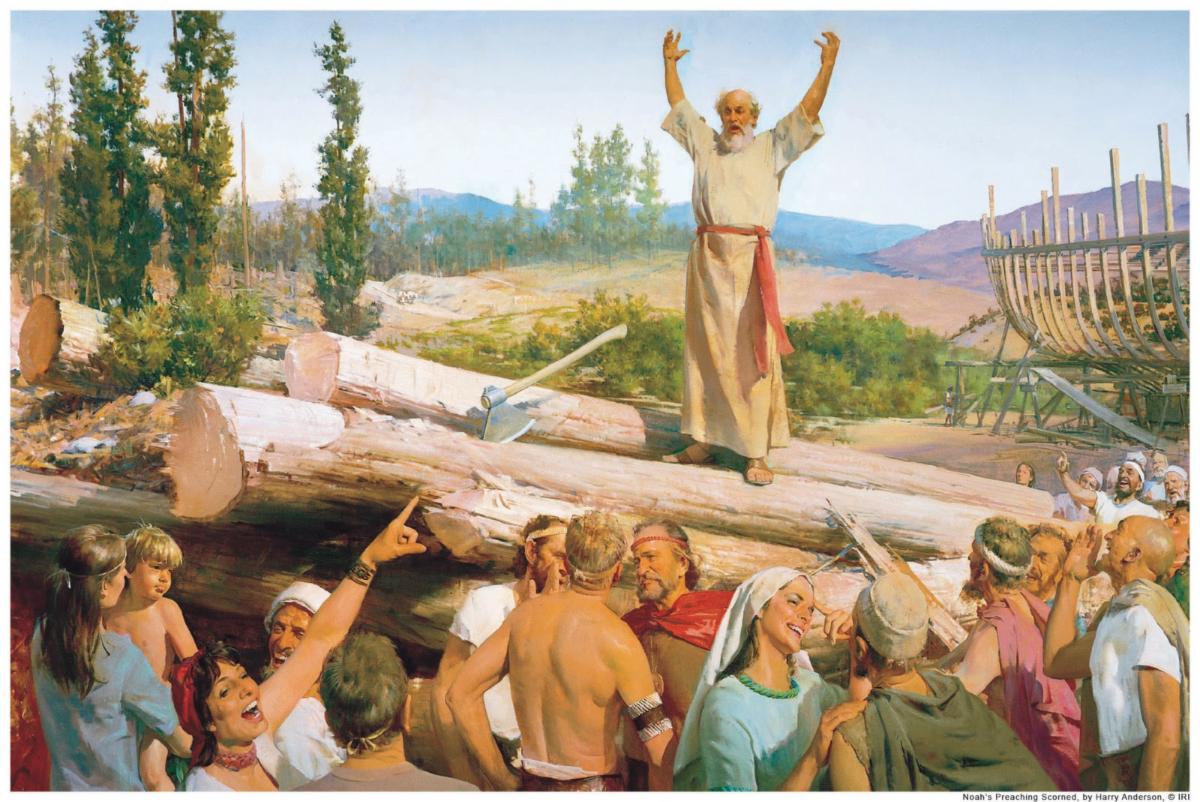
The theme of the Second Sunday of Advent is always the preaching of the prophets, calling us to repentance, and encouraging us to prepare the way for our salvation.
Repenting—or turning to God—is not a passive state of being at all. It must start with an overwhelming feeling of regret for our past actions, thoughts, words, or non-actions, accompanied by a sense of self-inadequacy in God’s sight, but it cannot remain there. It must necessarily spur us to a deep transformation of our lives, so that all the harm we have done—whenever possible—is compensated for, and our lives from that moment on become a better version of they are meant to be: God’s image and likeness.
This is what the repentance the prophets called the people to really meant. And John the Baptizer was a faithful follower of this prophetic call. So much so that Mark the Evangelist begins his Gospel with the words of the prophet Isaiah referring to God’s messenger calling the people to prepare the way of the Lord, and then he immediately introduces John the Baptizer and his proclamation of a baptism of repentance.
The fruits of true repentance as a way of preparing the way for the coming of God’s Reign of Love into the world are depicted in beautiful poetic images by the writer of Psalm 85: “Mercy and truth have met together; righteousness and peace have kissed each other. Truth shall spring forth from the earth, and righteousness shall look down from heaven.”
This powerful image reminds us of two lovers expressing their mutual feelings in their intimate exchange of tenderness, and it is a proper image indeed. It is in our authentic human relationships that our transformation into better versions of God’s image is truly shown.
Isaiah also uses a beautiful and tender image to show what God’s relationship to His people will be when He comes to live with them: “He will feed His flock like a shepherd; He will gather the lambs in His arms, and carry them in His bosom, and gently lead the mother sheep.”
And in his Second Letter the Apostle Peter reassures his readers that what they see as a “delay” in Christ’s coming to restore all things to God is nothing but His great mercy and His intent to include all in His new resurrected life. Peter states, “The Lord is not slow about His promise, as some think of slowness, but is patient with you, not wanting any to perish, but all to come to repentance.”
And he then addresses his readers with the following injunction—which is as valid for us today as it was for those he wrote it for: “Therefore, beloved, while you are waiting for these things, strive to be found by Him at peace, without spot or blemish, and regard the patience of our Lord as salvation.”
Fr. Carlos Expósito, Rector
|
RETURN TO TOP
Awaiting in Fruitfulness
This Sunday's Reflection - December 3, 2023
Get it in PDF form with calendar

The first four weeks of the Church Year—the Advent Season—are usually associated with the idea of waiting, expecting, getting ready for what is to come.
The coming of Jesus Christ our Lord--into the world as God incarnate (if we look at Advent from a past-time perspective), into our lives here and now (if we see Advent from a present-time standpoint), and as the King of kings and Lord or lords in the end times (if we use an eschatological viewpoint)--is undoubtedly the subject of this first season of the Church Year.
As in every waiting time for an event, there is always a need to make preparations for what is expected. We have our money or pass ready when we are waiting for the bus. We clean and declutter our houses when we are expecting a visitor to come and stay with us. We mentally review what we are going to say while we wait for a job or other type of interview.
These are only a few examples. Practically no waiting time in this life is inert time—a time when we simply do nothing and just wait for things to occur. Even if there is no outer physical activity, there is usually a lot of mental activity going on.
Advent is meant to be the most active waiting time ever. At least, it should be.
It should be a time of the year when we actively engage in the study of Scriptures and in the prayerful reflection of them. It should be a time when we do more prayer than usual. But it should also be a time when we deeply examine our lives and get rid of all that hinders our fruitful encounter with Christ and with one another, and with the rest of creation. It is a time for making the decluttering of our lives a number-one priority.
This is the perfect time to ask ourselves, “what is in the way of having a loving relation with my Creator and with His beloved Son, our Lord?” And it is also the best time to ponder on how we can be reconciled with those we have been estranged from, due to the hardness of our hearts, and our lack of reconciling will.
The waiting character of Advent should by no means prevent us from putting into practice Jesus’ Way of Love in our lives through active loving service to those in need. On the contrary, this should constitute the best preparation we can ever have to receive Jesus in our hearts, in our whole lives, and to be ready also for the time when His reign of love becomes all in all.
This is precisely what Paul refers to in his First Letter to the Corinthians, when, at the beginning of the letter he states, “for in every way you have been enriched in Him (Christ), in speech and knowledge of every kind—just as the testimony of Christ has been strengthened among you—so that you are not lacking in any spiritual gifts as you wait for the revealing of our Lord Jesus Christ.”
Fr. Carlos Expósito, Rector
|
RETURN TO TOP
A Most Peculiar Kingship
This Sunday's Reflection - November 26, 2023
Get it in PDF form with calendar
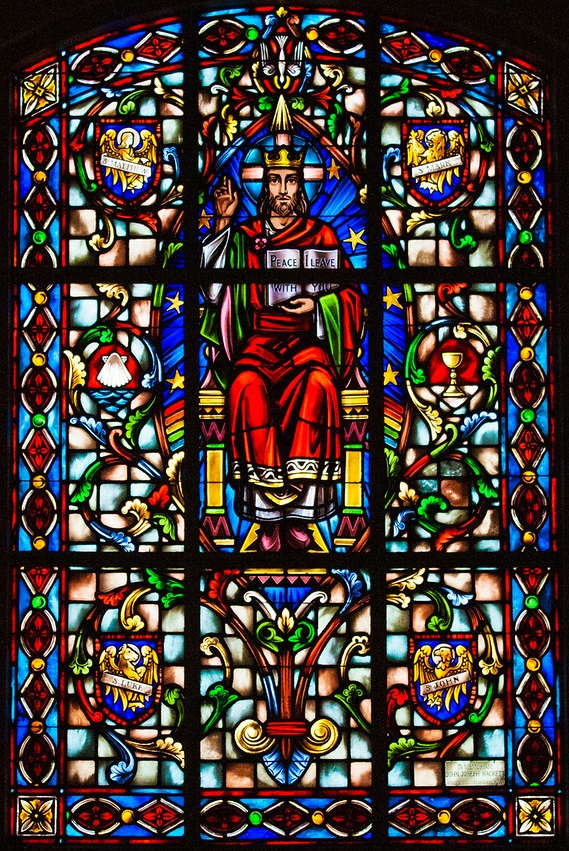
We start the church year with the joyful expectation of the Savior, the Christ, the Messiah, coming to the world to become God incarnate, coming to our own lives to reconcile them with the Creator and with the rest of humankind and creation, and coming at the end of the ages to fulfill God’s saving plan so that God may be all in all.
And we end the church year with the bold proclamation of Christ’s kingship and lordship in our lives.
It was Pope Pius XI who instituted the Feast of Christ the King in 1925, to respond to growing secularization and atheism. Although it is unofficially celebrated in some Episcopal parishes, it is not mentioned as such in the Episcopal calendar of the church year. However, the collect and readings for the last Sunday of the church year in the Episcopal Church all point to Christ as “King of kings, and Lord of lords.”
The use of the terms king and lord in the Church have a biblical origin, of course, and may not be the favorite of contemporary people living in democratic republics. Although even in this country there are fans of the British royalty who delight in all the pomp and pageantry of Buckingham Palace and its inhabitants, very few people in America would be willing to go back to colonial times and be ruled by a monarch.
A monarchy implies an autocratic form of government in which the will of one person decides the life of an entire nation or an alliance of nations. Nowadays this is rarely the case, even in countries where monarchies still exist, because there are other government bodies that counterbalance this kind of unilateral rule.
But in biblical times, and several centuries later, up to the Middle Ages and well into the Renaissance period, a king or queen had a real immense power. All the subjects of such monarchies could do was to hope and pray that their monarch would really follow God’s guidance and would act in the people’s best interests.
Interestingly, in the Hebrew Bible we do not always find the presence of monarchs. In fact, for centuries the Hebrew people would have God Himself as their true ruler, and would elect some among their people to represent them in cases where major decisions had to be made, or they had to battle against an enemy. These were the judges that we find in the Books of Judges.
It was only later, when they felt defenseless against the surrounding peoples who did have monarchies, that they started to think about the convenience of having a king. The prophet Samuel was at first reluctant to give them a king, and even warned them about the likely arbitrary decisions such a monarch would make in his own favor, and in total disregard of the people’s benefits. But they would be undeterred in their decision, so Samuel gave them Saul as their first king.
Kings in Israel were thought of as the shepherds that would lead the people in God’s name. They were respected, but they were never thought of as “divine” and had to be anointed by one of God’s prophets in the presence of the people to become monarchs.
Unfortunately, starting with Solomon, and continuing with the different kings in the divided kingdoms of Judea and Israel, there were very few monarchs, who, according to the Books of Kings, “did good before God’s eyes”.
The prophets all denounced the unjust rule of these kings, calling them “bad shepherds”, and some of them, like Ezekiel, speak in God’s name, saying “I myself will search for my sheep, and will seek them out…I myself will be the shepherd of my sheep, and I will make them lie down”, says the Lord. “I will bring back the strayed, and I will bind up the injured, and I will strengthen the weak, but the fat and the strong I will destroy. I will feed them with justice.”
God’s kingdom is depicted by Ezekiel, not as an arbitrary unjust kind of rule, but as a rule based on loving care and justice.
Jesus always preached the rule of love, which is the ultimate law that should govern this world. He not only preached it, but submitted Himself willingly to it, by giving Himself in loving sacrifice for the whole world.
His kingship and lordship has nothing to do with an arbitrarily imposed power. We are totally free to accept or reject Him as the absolute ruler of our lives. If we do, however, we cannot simply let Him rule in our lives partially. Accepting his total lordship may be a gradual process in our lives, but total acceptance is the final goal.
What this lordship means is not the loss of our wills, but the totally voluntary alignment of our wills with His, knowing that there can be no better guide for the course of our lives.
Christ’s rule is totally unpretentious. He is not even willing to retain His ruling power. According to St. Paul in his First Letter to the Corinthians, “When all things are subjected to Him, then the Son Himself will also be subjected to the one who put all things in subjection under Him, so that God may be all in all.”
Fr. Carlos Expósito, Rector
|
RETURN TO TOP
The Blessed Hope of Everlasting Life
This Sunday's Reflection - November 19, 2023
Get it in PDF form with calendar

Being a Christian may mean different things to different people, and again, it rightly means more than one thing even to those who consider themselves authentic Christians, but when it comes to the true Christian hope, it would most certainly be the title of this reflection.
More than a religion, Christianity is a faith. It is not so much about what we as human beings need to do to be rejoined to our Creator, but about what the Creator Himself has done and is doing to bring us back to our true home. It is not based on matter-of-fact data, but on a deep and pure conviction that goes beyond human logic and understanding.
It defies our reasoning, and yet, it does not prescribe that we reject the gift of reasoning that God has endowed us with.
It is a faith that has been revealed to us in the person of Jesus Christ, whose whole life, words, and deeds point to the One and Only Father of all, whom we can only “know”, not through our reasoning, but through the personal and communal experience of His unfailing and unconditional love.
This love finds its ultimate expression in Jesus Christ’s self-sacrifice on the cross, so that we could approach the Father as His true sons and daughters, through Him that died and was raised, thus defeating the powers of darkness and death for us all.
The Scriptures of the Old Testament can be recapitulated in the person of Jesus Christ, because the whole message of redemption for God’s people that the Law, the Prophets, and the Writings point at is epitomized in Him.
And the message that the Books of the New Testament—the Gospels, the Book of Acts of the Apostles, the Epistles, and the Book of Revelation—bring us is essentially one and the same: He who revealed the Father’s infinite love for us, Jesus Christ Our Lord, has brought the greatest and most wonderful of hopes to our lives—the hope of true, abundant and everlasting life.
This is a love-filled life—the only true kind of life there is. It is a life in which we find true and deep meaning. This life is no longer self-centered, or based only on our personal attainments, whether material or other. Its essence is the irresistible drive to give, to share, to give ourselves in love, just as our Creator does.
It is not a life to be shared only with our closest family members and friends, not even with those of our own nation or coalition of nations, but with all humankind. Our love of God will be shown through our authentic love of our fellow human beings.
But in this new way of living, we will also love the rest of the creatures in this world, because they are also part of God’s creation, which He labeled as “good”, according to the Book of Genesis.
For those who reject God’s Way of Love, this new way of relating to the Creator, to one another, and the rest of creation will be the worst of nightmares. Those who are unable to love in Christ’s way cannot conceive of a world where giving and sharing, even to the point of self-sacrifice is the greatest joy. For the selfish ones, this would be the worst torment.
That is why the prophets, like Zephaniah, refer to the Day of the Lord as “a day of wrath, a day of distress and anguish, a day of ruin and devastation.”
And the Apostle Paul, in his First Letter to the Thessalonians, referring to the Day of the Lord, says, “When they say, ‘There is peace and security’, then suddenly destruction will come upon them, as labor pains come upon a pregnant woman, and there will be no escape.”
But then, right after this, in the same paragraph, St. Paul states, “But since we belong to the day, let us be sober, and put on the breastplate of faith and love, and for a helmet the hope of salvation. For God has not destined us for wrath but for obtaining salvation through our Lord Jesus Christ, who died for us, so that whether we are awake or asleep we may live with Him.”
Fr. Carlos Expósito, Rector
|
RETURN TO TOP
Grieving in Hope
This Sunday's Reflection - November 12, 2023
Get it in PDF form with calendar

As we mature and get older, the reality of death strikes us in the innermost recesses of our beings, whether in the form of the death of our dearly beloved ones, or as an announcement of our own death.
Children and young adults do not usually think of death, except in cases when they have lost a parent, grandparent, or sibling, or a dear friend who has prematurely died. Even so, they do not normally think of death as something happening to them in the near future, except in some cases when they suffer from serious diseases, and if they ever do, they usually dismiss the thought as something alien to them, and go on with their lives.
Modern society has tried to put the thought of death away from people as much as possible. Unlike ancient societies, where people buried their loved ones as close to them as possible, and made them a part of their daily lives by honoring their memory in different ways, modern societies put their burial places as far away as possible from living premises, based on hygienic concerns, but there is also an untold element of avoidance here.
It is undeniable that death—whether that of our loved ones or our own—brings us grief. As natural and unavoidable as we may reason it to be, the fact is that there is something that seems unnatural and devastating about it when it touches us at a personal or communal level.
We humans have been created as beings that necessarily enter into mutual relationships. This mutuality generates strong attachments in our lives. We feel attached to our parents, siblings, spouses, children, and friends. If we are part of a church congregation, we feel attached to the other members of our church. This is what makes the feeling of love grow in our lives. This is how we start to understand how God loves us all equally, and eventually learn to imitate His unconditional love for us all.
Our Christian faith teaches us that just as Christ died and was raised from the dead to everlasting life in communion with the Father, so will we be raised if we follow in His Way of Love.
The doctrine of the Communion of Saints also reminds us that in God’s love we are all living, and that when God is all in all at the consummation of the times, we will all be reunited with Christ and with one another in this perfect communion.
Some say that it is unchristian to grieve when a loved one dies, or that we should not feel grief for leaving our loved ones behind when we are aware of our imminent death, because our faith gives us true hope in the resurrected life.
However, it is precisely because we love one another that we feel the grief. If we do not feel anything it simply means we are unable to feel affection for anyone.
There is a time for grieving the ones who have passed, and in fact, that grief never totally goes away. We do not forget our loved ones; we simply learn that we need to move on, and that their love for us is such that they would not want us to continue grieving for them.
True love is not selfish. When we gradually learn to love like Christ does, we also learn that letting go of the grief is part of love. We want to remember our loved ones, and feel their love, but not lamenting the fact that they have passed, because that is irreversible, but bringing to mind the wonderful loving moments spent together, and the good examples that they left us as a cherished legacy in our lives.
In our prayers, we always keep them in God’s light, and we feel their love and their constant prayers for us. But above all, we do not grieve their absence “as those who do not have hope”, as St. Paul says in his First Letter to the Thessalonians, but as those who firmly believe that “through Jesus, God will bring with Him those who have died.”
Fr. Carlos Expósito, Rector
|
RETURN TO TOP
Who Are The Saints?
This Sunday's Reflection - November 5, 2023
Get it in PDF form with calendar
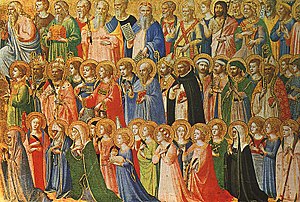
November 1st is the Feast of All Saints. This Sunday our Parish, named All Saints, is celebrating its Patronal Feast.
Our Parish is decorated with a multitude of stained glass windows depicting saints from different times in history, and predating human history, starting with the Archangels, Powers, and Thrones, and ending with more contemporary bishops in the Anglican Communion, and even in the Episcopal Church.
This variety tells us something about the open-mindedness present in the selection of the entities who would make up the collection of stained glass windows in our Parish.
Many of us have, at different times, asked the question about who the saints are, and if we ourselves hope to be a part of this great host of faithful witnesses of Christ’s Good News of Salvation for all.
The Hebrew equivalent of the English word saint was used in the Old Testament as a synonym of “set apart for God’s worship or service.” The priests and levites were set apart for this service and had to follow a certain rule of life, and carry out purification rituals to be able to take part in such functions. Only the High Priest was allowed to enter the Holiest of Holies—the place where the Ark of the Covenant was kept in the Temple— once a year, during the Day of Atonement, to offer sacrifices for all the people.
In a more general sense, the Jewish people considered themselves as saints, in the sense that they had been set apart by God to live according to His covenant, and be a living example for the rest of the nations, who would eventually be saved by worshiping the only true God.
The first Christians were, of course, Jews, and they reflected this view in their writings. St. Paul usually makes a distinction when he refers to the Jewish Christians as “the saints” in some of his letters, but eventually he included the Gentile Christians in the category of saints as well.
So the first Christians called themselves saints. They believed that by their election they had been set apart by God to serve Him and serve one another in loving care. In fact, those first Christians, if they were authentic and persevering followers of Christ’s Way of Love, had to put up with persecution, rejection, scorn, and even martyrdom, so they were really distinguished as being a special kind of people who, as the Book of Revelation says, “had come out of the great ordeal; they have washed their robes and made them white in the blood of the Lamb.”
And they were “a great multitude that no one could count, from every nation, from all tribes and peoples and languages.”
This gives us the idea that the writer of the Book of Revelation no longer held the concept of the saints as the followers of Judaism, but as a really inclusive concept comprising all those who consistently practiced Jesus’ radical Way of Love and, through faith in Him, purified themselves, not through rituals and sacrifices, but through a life of true devotion and loving service, to become part of those sanctified by God.
Throughout the centuries, the Christian Church, particularly the Roman Catholic Church, has appointed a certain number of people whose examples of piety and true witness of the faith excel and nourish the faith of the people, to be the saints of the church. The Roman Catholic Church has its own process of canonization, with a series of requisites that a person needs to fulfill to be considered a saint.
Apart from any human considerations, a broader concept of saints should prevail among us, and this is very much in line with what we have in the stained glass windows of our Parish.
As Christ’s followers we are all being called to sanctification, to a life of real devotion, dedication, and loving service to all. The communion of saints includes all those who are no longer among us on earth, and those who are still in this pilgrimage of faith on this planet.
In the end, we, as part of the great multitude of saints, will all share in God’s glory, and as the well known hymn says, ‘From earth’s wide bounds, from ocean’s farthest coasts, through gates of pearl streams in the countless host, singing to Father, Son, and Holy Ghost, Alleluia, Alleluia!”
Fr. Carlos Expósito, Rector
|
RETURN TO TOP
The True Christian Love
This Sunday's Reflection - October 29, 2023
Get it in PDF form with calendar

In a world where the word love has been so often misused and manipulated to conform to someone’s or a group’s self-centered interests, it becomes more urgent than ever to clarify what the word that has been translated into charity and love actually meant and means for the true followers of Christ.
Charity is the English word that was first used as the equivalent for the Latin word caritas, which is the way in which the Greek word agape was rendered in Latin.
What this word meant for the New Testament writers, who used Koine Greek in their writings because that was the lingua franca of the time, is what it meant for all those who spoke that language: not so much a feeling or sensation, but a concrete way of relating to and acting toward the other—one in which justice, mercy, and loving care manifested itself in concrete words and actions. The essence of agape is its unconditional character, its total inclusiveness and impartiality. It is also used to refer to God’s love for all.
The New Testament writers also used the word phileo to refer to the kind of affection that was present among members of the same family, or friends, or between a master and his disciples. In some cases the distinction between the two terms is not so clear when referring to the mutual love that was professed among the followers of Christ.
When the word charity, through its use in charitable works, became associated more exclusively with this kind of activity, more modern translations of the Bible began to use the English word love in its place. This word probably speaks more to the contemporary reader and listener of God’s Word, but its use by so many other people to refer to a kind of affection which excludes certain groups in favor of others, or that simply includes the group of people that they favor or like, may result in confusion and deceit.
Even saying out loud or writing on a big poster that you love the whole universe does not guarantee that your actual words and actions in specific circumstances—particularly when faced with people you may dislike a lot—translate into the unconditional loving care that these words imply. Unfortunately there is a modern tendency to be so “universal” in our proclamations that it all comes down to mere high-sounding words, with no actual concrete manifestations in people’s lives.
When Jesus replied to the Pharisee’s question about the greatest commandment in the law, He used quotes from two different books of Moses’ Law—He did not invent anything, but He was not thinking in abstract terms at all. The Jews did not use abstractions in their language. They would not say, “Love the Lord your God with your whole being”, but “with all your heart, and with all your soul, and with all your mind.” That clearly showed that it was not an abstract kind of affection, but one that went to the very depths of your feelings, the essence of your very life, and the core of all your thoughts.
And “you shall love your neighbor as yourself” is not an abstraction either. It is a definite way of loving the ones you come in contact with, doing to them exactly as you would have others do to yourself. Who would like others to mistreat them, or neglect or ignore them when they are in need? No one for sure.
Through the practice of charity, this love that makes no distinctions, and that is put into practice not only when it is comfortable or convenient to do so, but at all times that it is needed, we may even come to relate to others in a fashion that resembles the deep affection that Christ feels for all His followers, for all of humanity, and for all the creatures on this planet.
This is what St. Paul expresses in his First Letter to the Thessalonians, chapter 2, when he says, “though we had already suffered and been shamefully mistreated at Philippi, as you know, we had the courage in our God to declare to you the gospel of God in spite of great opposition.”
And further on he expresses, “So deeply do we care for you that we are determined to share with you not only the gospel of God but also our own selves, because you have become very dear to us.”
The constant practice of agape makes us come to have a deep affection for all those entrusted to our care. Such is also the true Christian love.
Fr. Carlos Expósito, Rector
|
RETURN TO TOP
Giving to God What Is God's
This Sunday's Reflection - October 22, 2023
Get it in PDF form with calendar
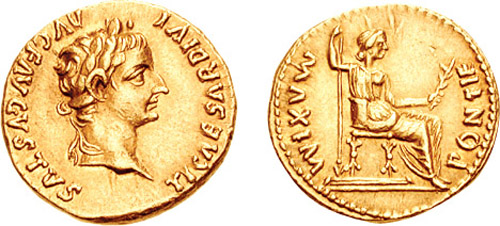
The passage from Matthew’s Gospel, where Jesus is put to the test by Pharisees and Herodians who want to trap Him in His own words, is really well known. They ask him whether it is right to pay taxes to the Emperor.
And the reason why this passage is so well known is, unfortunately in many cases, the wrong one. “Give to Caesar what is Caesar’s and to God what is God’s” has been interpreted as a compartmentalized way of worshiping, as the basis for the separation between church and state, etc.
There is nothing wrong with the separation between church and state, especially when it is understood as the church not being the power that makes political decisions for its own benefit, as it happened in the past when popes and other church prelates had more power than kings and princes.
What this separation also guarantees is that no specific denomination favored by the state is the ruling one, to the detriment of others, including people who profess a different faith, or no faith at all.
It is important to realize that these interpretations of Jesus’ words come mainly from a poor understanding of the context in which they were said, and of Jesus’ real intention.
First of all, for the Jewish people—and Jesus was definitely a Jew—there was no such thing as a compartmentalized life. Their faith was an essential part of their whole lives. There were no secular powers as we know them nowadays. The rulers of the social life were also the religious rulers. So the idea of worshiping God as a separate part of their lives was totally alien to Jesus.
The Romans, whose imperial power had been imposed upon the Jews in Jesus’ time, had many gods, but they also believed that in some way the Emperor was divine, and erected statues of him to be worshipped by the people. The printing of the Emperor’s image on coins was also a reminder that it was through his grace that people were able to acquire their basic needs, and also that his power demanded that taxes were paid back to him.
Coins with images were considered idolatrous by the Jews, so Roman coins had to be exchanged by Jewish ones to be presented as offering in the Temple. However, they were normally used to pay tribute to the Romans.
When Jesus is asked that famous question He immediately realizes He was being led to a trap, and explicitly states so to His interlocutors. He then asks them to show Him the coin used to pay taxes. There must have been a scornful tone in Jesus when asking them to show Him the coin. A coin with the Emperor’s image was something to be despised, and yet Jews had to suffer using it to pay the Emperor’s taxes!
The question was only about the adequacy—or not—of paying taxes to the Emperor. Even those who had more wealth among the Jews resented to have to pay such taxes, and Jesus was aware of it. But He was not going to fall into the trap of saying something that they might use against Him. His time had not come yet.
He then replies using His great wit, but adds something else—the greatest teaching that most of the readers of His words have misinterpreted or missed altogether.
He says, “give to the Emperor what is the Emperor’s” (that despicable idolatrous coin that he unjustly demands as tribute). He did not utter the words I have included in parentheses, for sure, but his tone when uttering them may well have implied this.
And then He adds, “and give to God what is God’s.” What did Jesus mean by that?
Was Jesus referring to another coin, to another tribute in particular, to the offerings that people put in the collection boxes in the Temple?
It is very unlikely, since the question was not about Temple offerings at all. Jesus is being a true Jew here. He believed that God had created all that exists, including human beings, and that all we had, all we ever were or attained, was always God’s, and it was our duty to give it all to Him.
If the Pharisees and Herodians who asked Him the tricky question they asked Him had understood this simple truth, they would not have asked Him the question in the first place. The God who created them was the same God who created all creatures, so all His creatures are brothers and sisters and deserve to be loved as God’s living images, the only true images of God that deserve true veneration—not worship, unlike the Emperor’s image stamped on the coins.
Trying to harm one of God’s true images is a crime, and on that particular occasion this is what these Pharisees and Herodians were trying to do. Jesus’ wit prevented them from doing so at that moment, but He wanted to teach them a lesson. Reminding them that everything and everyone belongs to God was a great lesson. Unfortunately, the events that unfolded later show us that many of them dismissed Jesus’ wise words.
Giving to God what is God’s is so much more than putting some money on the collection plate on Sundays, or even pledging ten percent of all our income to the church. There is nothing wrong with doing this, for what we receive for our work also comes from God, but Jesus’ injunction has to do with the whole of our lives, our time, our whole being, the giving out of ourselves.
Fr. Carlos Expósito, Rector
|
RETURN TO TOP
Holding Fast to Our Inheritance
This Sunday's Reflection - October 8, 2023
Get it in PDF form with calendar

When someone learns that they are the recipients of a great inheritance, it is only natural to be joyful and celebrate, and also to make sure that what has been inherited is not lost.
All living creatures on this planet have the greatest gift of all—life itself, but as human beings, we have all been endowed with God’s very likeness and image, which is reflected mainly in His all-encompassing life-giving love. No other inheritance that we receive as money, land, properties or others, could ever been compared to this great blessing.
True followers of Jesus’ Way of Love have come to understand this, and Jesus Himself has promised that we will partake of the same inheritance that He, as God’s beloved Son has received from His Father: true, abundant, and everlasting life.
This inheritance is not something we have earned through our own efforts or good deeds, but it has been given gracefully and freely to us by the mediation of Jesus Christ’s self-giving sacrifice.
The only way we can lose this freely given inheritance is by rejecting it. In His boundless love, God has created us absolutely free to embrace His love or reject it. It may sound paradoxical, but true love never compels. It needs to be freely accepted.
For true followers of Christ, it is painful to know of fellow human beings who stubbornly refuse the grace of God’s inheritance, and the only thing that can be done is to keep on proclaiming the Good News of Salvation to all we can reach, trusting that at some point in their lives the Holy Spirit will open their hearts and minds to receive this wonderful grace.
Unfortunately, there are also some who gladly receive the Good News, but then fall back into their old ways, and may lose their inheritance.
Maturity in Christ’s Way is what prevents us from falling back, and is also what enables us to present the message to others with constancy and consistency.
The Apostle Paul, in his letter to the Philippians, clearly saw the dangers of losing God’s wonderful inheritance of true and abundant life, and warned the new converts about the consequences of their demise.
In chapter 3 of the letter he states, “Brothers and sisters, join in imitating me, and observe those who live according to the example you have in us. For many live as enemies of the cross of Christ; I have often told you of them, and now I tell you even with tears. Their end is destruction; their god is the belly; and their glory is in their shame; their minds are set on earthly things.”
The greatest and most wonderful inheritance that any can ever receive is given to us freely, but we need to hold fast to it, and never, never, let it go.
Fr. Carlos Expósito, Rector
|
RETURN TO TOP
Six Pillars of a Healthy Church
This Sunday's Reflection - October 1, 2023
Get it in PDF form with calendar
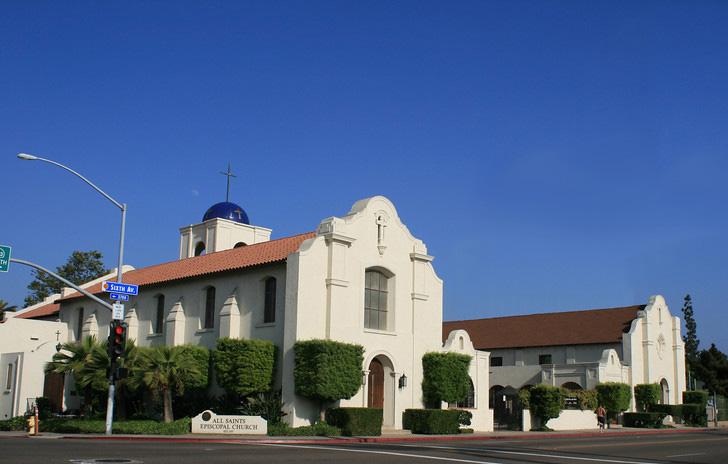
One of my passions in life as a priest is to help grow the church. I have come to believe that healthy churches grow in three ways. They grow spiritually in Christ, numerically in new members and financially in the gifts and offerings of parishioners. When people ask how can churches achieve such growth, I share with them the six pillars of a healthy church. You can remember these six pillars by the acronym SWEEPS – Service, Worship, Evangelism, Education, Pastoral Care and Stewardship.
Service. Bishop William Burrill would say, “The church that lives to itself dies by itself.” Service is meeting needs, healing hurts, and caring for the vulnerable in our community. It is having an outreach orientation, thinking of others and not just ourselves. It is not just saying love with our lips but expressing love in our lives. Love always expresses itself in deeds – in acts of kindness, mercy and generosity. Showing love is the greatest witness to our Christian faith. As a post-Vatican II Roman Catholic song put it: “They will know we are Christians by our love.”
Worship. Every Sunday Episcopalians profess our faith in Word and Sacrament in the use of The Book of Common Prayer. We come from different backgrounds, have different experiences, and see the world in different ways, but we are one in our worship of God. Bishop Michael Marshall said that the church is a community of people who have nothing in common except Jesus Christ in whom they have all things in common. We all have our idiosyncrasies, our unique mannerisms, habits, and speech. We are certainly not all alike, but by the grace of God we are all drawn to the Lord’s Table to eat the Lord’s food – to feast on Christ’s Body and Blood in the Eucharist. Someone once said that if you want to know what Episcopalians believe, look at how they worship. In almost every Episcopal church you see the beauty of holiness and the holiness of beauty – God’s presence revealed and proclaimed.
Evangelism. William Temple, the Archbishop of Canterbury during World War II, said that the Church exists for the benefit of those who do not belong to its membership. That means engaging in evangelism: sharing the good news of God’s love in Jesus, so that all persons come to know him as Savior, follow him as Lord, and live as active members of the church. The challenge for the church today is how to share the Gospel with a growing number of people who never attend church or may not even know the Christian story. This is no easy task in our secular culture, and yet Jesus commanded us to make disciples of all people (Mt. 28:19-20). We have a wonderful message to tell: God’s unconditional love in Jesus that transforms lives, forgives our sins and gives us the hope to face the future wit faith and courage, confident that the best is yet to come.
Education. Christian education is more than information. It is formation leading to transformation. Education is more than learning the basics of the Christian faith. It is about experiencing God on a personal level – knowing God not off the top of your head but from the depths of your heart. A healthy church is one where members are growing in faith, using their spiritual gifts in ministry and living faithfully in a rapidly changing world. To put it crassly, we need to think of ourselves as in the “God business.” People who come to church expect an encounter with God – to experience God in a personal, powerful way. How can we help people experience God? How can we better explore faith questions in a nurturing and non-threatening manner? And how can we balance the head with the heart so that we reach both thinkers and feelers? We need both a rational faith that is intelligible and a supernatural faith that is felt more than understood.
Pastoral Care. Quality pastoral care ministries offer a loving and grace-filled response to the joys and pains of being human. Caring for the elderly, the sick, the homebound and people in crisis is the heart of a loving church. No member should fall through the cracks, or be forgotten, ignored or disregarded. Every member is entitled to the love and support of a caring church family. While clergy do a great deal of pastoral care, the New Testament model is that members minister to members – what we call every member ministry. I encourage you to think about your spiritual gifts and how you might use them at church and in the community.
Stewardship. The new life in Christ leads to a new lifestyle in Christ. Stewardship is everything I do after I say I believe. It is connecting belief and behavior, creed and conduct, the profession of my faith with the practice of my faith. Often, we think of stewardship only in terms of money, but it actually involves our whole lives. It about our response to the unfailing, unlimited love of God. What can I give to God when God has given me everything? That is a humbling question which each of us must ponder ourselves. I love the way the hymnwriter Isaac Watts put it: “Were the whole realm of nature mine, / that were an offering far too small; / love so amazing, so divine, / demands my soul, my life, my all.”
This fall I encourage you to think through these six pillars of a healthy church. Remember, we are all works in progress. None of us have arrived; we are all in process. We stumble at times, but God picks us up and we move forward. Of this I am certain: God is with us through all the ups and downs of our lives. Never lose hope because God is with us always.
Blessings,
Fr. Gary Nicolosi
Dr. Gary Nicolosi is an Episcopal priest and lawyer who has served in churches and on diocesan staff in the United States and Canada. He has written hundreds of articles and led seminars and workshops on church vitality across North America. Gary is passionate about transforming lives in Jesus and forging a way forward for the church in a secular, postmodern world.
|
RETURN TO TOP
Fruitful Labor for the Lord
This Sunday's Reflection - September 24, 2023
Get it in PDF form with calendar

We all love to see the fruit of our labor, whether it is in currency or in finished works. When we put our time and effort into something, we also need to believe that it has not been in vain, and that some benefit for ourselves and also for others will come out of it.
Our measure of the value of our work, however, will not always coincide with God’s view. We need to remember that God’s thoughts are not our thoughts, and what we may consider irrelevant or even contrary to logic may be of great value in God’s all-loving plan for His creation.
This has a lot of bearing for Christians, if we are to be real followers of Jesus’ Way, which is also God’s Way. When choosing an occupation or career, we must look not only at the face value of it in terms of monetary profit, but we must also ponder on how our labor will align with God’s will for all humankind and all creatures.
Fruitful labor for the Lord must not be measured in terms of human prestige or standing either. Occupations that are often looked down upon—like sanitation work, for instance—are of great value for the cleanliness and health of the human communities and the planet and must be so acknowledged by all who follow Jesus’ Way of Love.
When it comes to spiritual work—like evangelization, preaching, healing, and education in the faith—we need to rethink our patterns of hierarchies, and measure the fruitfulness of the work in terms of how our labor serves the Lord’s Great Commission of taking the Good News of Salvation to the rest of the world.
We are used to concepts that work well for us in the labor world, like equal pay for equal work, and pay according to the time worked. These are considered to be the fairest ways of paying for human labor.
When it comes to laboring for God’s Kingdom, nevertheless, we may find that God’s Way may differ from our ways of looking at things.
The only thing that was ever said to try to define the undefinable God was “God is love.” Love is marked by unlimited generosity, so our Lord and Creator does not really care if we come to labor for His Kingdom before or after, or since when we have been doing it. His invitation to join in the most sacred and rewarding of labors is for all, at any time, for as long as we can.
And the reward is not measured in money or even products, but in ever-growing communion with Him and with all who labor for making God’s Reign of Love a reality. And this is the greatest of rewards anyone can ever receive.
When Jonah was reluctantly obeying God’s command to preach repentance to Nineveh, the great sinning city, he could not share in the joy of their repentance—in the fruit of his labor—simply because his inner grudge towards these people did not allow him to really join in God’s fruitful labor. And this sadly prevented him from receiving the reward God was willing to give him.
St. Paul says in his letter to the Philippians that he is hard pressed between choosing departing from this world to be with the Lord (which he considers the greater good) and remaining in the flesh to continue his evangelizing work. But he concludes that remaining in the flesh is God’s will for him at the moment, for the sake of the new converts’ progress and joy in the faith.
Assessing the fruitfulness of our labor from the perspective of God’s life-giving love for all is always the best measure.
Fr. Carlos Expósito, Rector
|
RETURN TO TOP
We Are All Accountable to God
This Sunday's Reflection - September 17, 2023
Get it in PDF form with calendar

Forgiveness is at the very core of Jesus’ teachings to His followers. Jesus not only insisted on the fact that God always offers forgiveness to the truly repentant sinner, but also pointed out that just as God forgives our many sins, we must in the same way forgive those who sin against us.
This idea appears in the prayer that Jesus taught His disciples, known as The Lord’s Prayer, and also in Jesus’ exchanges with them, as in the case when Peter asks Him if he should forgive seven times another member of the church sinning against him,, thinking that seven was an excessive number of times indeed.
Jesus’ reply to this question was seventy-times seven (490 times!) Of course, we should not take this number literally. I cannot fancy anyone counting the number of times they forgive someone to see if they reach this number. The number is a high multiple of seven. Seven was a number used to represent something whole or perfect. So what Jesus actually meant was that there was no limit to forgiveness.
The topic of forgiveness has been dealt with throughout history from different perspectives, and in our modern times, psychologists have been recommending forgiveness as a way of being free from past hurts. They have recommended forgiveness even when it is not possible to have the offending person repent from their offenses.
Jesus Himself showed in His life how He was able to forgive even those who were tormenting and mocking Him during his suffering at His trial and crucifixion. He asked the Heavenly Father to forgive them not because they repented, but simply because, according to Jesus’ words, “they did not know what they were doing.”
Now this “not knowing what they were doing” should not be taken as meaning they were not acting consciously or in total awareness. They obviously were. It probably referred to the fact that they might not have a full awareness of the account they would have to give before the Creator in due time.
Jesus was actually asking His Father to remove their accountability for this horrible act. So incredibly loving and forgiving is Jesus’ heart!
We are all accountable before our God for our thoughts, words, acts, or undue omission of them. Our all-loving Father is also a just Father. True love and mercy need to go hand in hand with justice, or it becomes a lenient and permissible kind of love that produces only crooked and entitled beings who only care about themselves and never learn to love.
The fact that we are all sinners because of our human weakness and failure should be an incentive to ask our Creator for forgiveness, provided that we also ask the Holy Spirit to enable us to make amends and change our ways for the better each new day.
Recognizing our own sinfulness and that we are all accountable before God should be the number one reason to be willing to forgive those who sin against us. After all, what can make us think that we deserve forgiveness while the rest of humanity does not?
This is much in line with what Jesus Himself taught His disciples in the Parable of the Wicked Servant, and also in line with what St. Paul says to the converts in Rome, in chapter 14 of his Letter to them, when he states, “Why do you pass judgment on your brother or sister? Or you, why do you despise your brother or sister? For we will all stand before the judgment seat of God.”
This idea is also key in the Book of Ecclesiasticus, chapter 27, when the writer states, “Forgive your neighbor the wrong he has done, and then your sins will be pardoned when you pray…If he has no mercy toward another like himself, can he then seek pardon for his own sins?”
Pardoning others has never and will never be easy, especially when the offense hurts us deeply, but among all the reasons that may be given to forgive others, none is truer or more biblically grounded than the fact that we are all sinners, and we are all equally accountable before God.
Fr. Carlos Expósito, Rector
|
RETURN TO TOP
What Jesus' Followers Hate
This Sunday's Reflection - September 10, 2023
Get it in PDF form with calendar
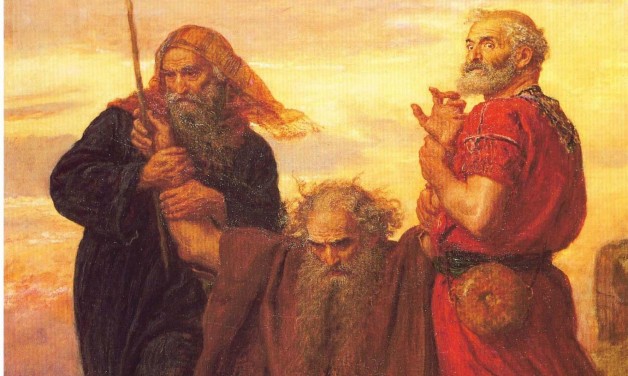
Hatred is not a word whose frequent use Christians would encourage. On the contrary, as followers of Jesus, we are encouraged to avoid not only the words hate and hatred, but to avoid the feeling and, above all, the practice.
Hatred as it is frequently understood is a negative and destructive feeling, usually directed at a person or a group of people whom we consider our enemies, either because they oppose our vital interests and welfare, or because they have harmed us or are potentially harmful to us.
This can extend from the personal to the communal, and even to the national or international arena, causing conflicts and even wars.
New Testament writers, voicing Jesus’s sayings or expressing their own views as Jesus’ followers, are totally opposed to this kind of hatred, and in their writings exhort the communities of converts to live in harmony and peace, avoiding any kind of animosity leading to hatred among them.
Old Testament writers may sometimes advocate for hate and even destruction in the case of the unfaithful to the Lord. However, some prophets, like Ezekiel, present a view which is more in accord with the later New Testament view in this sense.
In chapter 33, the prophet Ezekiel states, “As I live, says the Lord God, I have no pleasure in the dead of the wicked, but that the wicked turn from their ways and live; turn back, turn back from your evil ways; for why will you die, O house of Israel?”
So according to this view, God hates sin, but not the sinner. God knows that if the sinners persist in their sins, they will inevitably be destroyed, but would rather have them repent and live.
In his letter to the Romans, St. Paul uses the verb hate in the sense of disliking something deeply and rejecting it. In this sense, the word can and should be used when referring to evil and sin.
St. Paul expresses that for love to be genuine, we must necessarily hate what is evil. And to make things clear, on the very same line he adds, love one another with mutual affection; outdo one another in showing honor.”
And if we still have doubts as to whether St. Paul is only advocating for love among the members of the church, further on he says, “Do not repay anyone evil with evil, but take thought of what is noble in the sight of all.” And he then goes on to say, “if your enemies are hungry, feed them; if they are thirsty, give them something to drink; for by doing this you will heap burning coals on their heads. Do not be overcome by evil, but overcome evil with good.”
This is a pivotal true teaching in Christianity. Jesus Himself showed us how He did not hate even his tormentors and executors and forgave them out loud before His Heavenly Father.
The only way to overcome evil is by hating it in the sense that St. Paul shows, and by using good to oppose it.
The phrase “heap burning coals on their heads” may be ambiguous, but I would like to read it in a positive sense. Not in the sense that by doing good to my enemies I will favor their destruction, but in the sense that they may feel a fire in their heads that will make them turn from their wicked ways and live, as the prophet Ezekiel states.
Fr. Carlos Expósito, Rector
|
RETURN TO TOP
Our True Spiritual Self
This Sunday's Reflection - September 3, 2023
Get it in PDF form with calendar
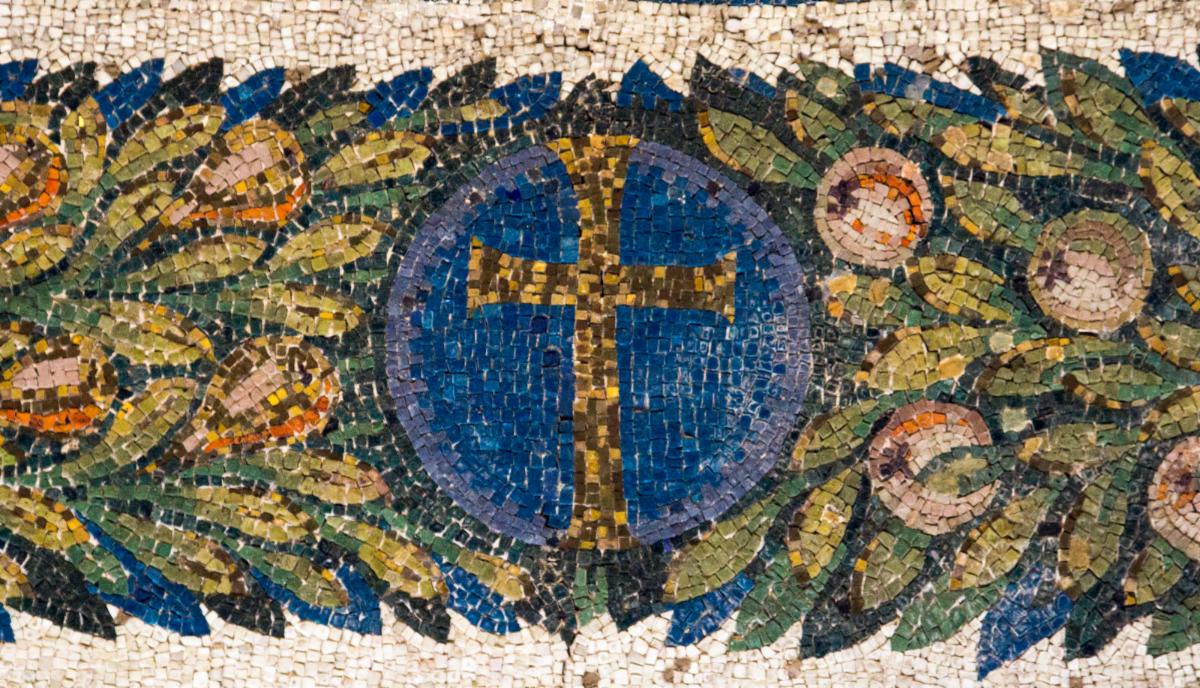
In times when it has become almost a cliché to affirm “I am a spiritual person, but not a religious one; I am not affiliated to any particular denomination”, it is more significant than ever to have some clarity about what is meant by “being a spiritual person.”
As human beings, according to Anglican writer on spirituality Evelyn Underhill, we are amphibious creatures, because we live in both a physical and a spiritual realm.
What this implies is that by our very essence we are all “spiritual beings” in a sense. To what degree we show or develop the spiritual side of our nature is something else.
Unfortunately, there has been a tendency in the last few decades to equate spirituality with the practice of certain contemplative forms of prayer or meditation, some of which are part of the Christian tradition—particularly in its monastic expression, and some of which have been taken from other religions, like Buddhism and Hinduism.
Although there is nothing wrong with the cultivation of a greater inner awareness to center our beings in God, the real sense of spirituality goes beyond what any of these useful tools may bring about.
What really shows whether someone is spiritually advanced is how that person relates to the Creator, to themselves, to their fellow human beings, and to creation in general.
Trying to split body and soul while we are living on this planet will only bring about a lopsided sort of life—a life of detachment from our fellow creatures— which can even become the least spiritual form of life ever: a life filled with spiritual self-pride and contempt for the rest.
Our bodies have been given to us as an integral part of our beings. They are the genuine means by which we carry out the true spiritual worship on this earth.
Our Creator does not really need anything from us simply because the whole universe is His creation, including us. All offerings and other types of sacrifices that we may present to the Creator are not what the God we believe in would really want from us.
If we want to give our God the real worship that pleases Him, then we must understand that He created us for a purpose. He gave us a body that enables us to do wonderful things for ourselves and for others. Our hands, guided by our minds, can do wonders to transform creation into something ever more beautiful and grandiose. Our feet can lead us to places where our work is needed to help others with more limited resources and means.
Our mouths can pronounce words and sing songs that bring hope and transform lives into a much better expression. They can bring healing and comfort during rough times.
All this can be reversed, unfortunately, when our bodies and minds are used in a destructive, selfish, and devious way. This is the toll that being created with free will entails.
The true spiritual worship that God desires is the right use of our bodies, with all its capacities, and all the talents and special gifts that each of us has been granted, cooperating in love with one another to make this world a place that resembles, to the greatest possible extent, God’s reign of unconditional love for all.
As St. Paul expresses it in his appeal to the converts living in Rome, “present your bodies as a living sacrifice, holy and acceptable to God, which is your spiritual worship.” No other “spirituality” is greater than this, for sure.
Fr. Carlos Expósito, Rector
|
RETURN TO TOP
God’s Inscrutable Ways
This Sunday's Reflection - August 27, 2023
Get it in PDF form with calendar

We are used to thinking of Christianity as a religion that offers salvation to all peoples, and makes no distinction based on race or national origin. As long as someone accepts Christ as their Lord and Savior, this person will not be excluded from God’s House.
This is true, and even though throughout the history of Christianity not all peoples have been treated with equity by the ruling classes professing the faith, the idea that the acceptance of Christ is essential for the salvation of the soul prompted even colonizers in the past to make sure that the Christian faith was also taken to all colonized peoples (most of the time in a forcible manner, unfortunately).
In most recent times humanity has become aware of these great mistakes of the past, and the idea of a really inclusive and equitable (but not by any means imposed) Christian faith is prevailing in most countries of the world.
Sadly, separations have existed within the Christian church until recently even in the western world, including America. Although these separations were not seen as exclusion from God’s grace, they have certainly created a sense of division and exclusion from within.
Until a few decades ago, there were churches for white people and for black people (folks with a somewhat dark skin had problems finding their slot). There were also churches where (although not explicitly expressed) you were only truly accepted if you had a certain social standing.
Fortunately, these divisions have been done away with (officially) in most churches in the last decades. Doctrinal differences and issues related to gender identity are still a dividing factor, and the latter issues are creating a greater split in today’s Church Universal.
It would be good to take a look back at what the founders of the church, like St. Paul, and even the Jewish prophets like Isaiah, had to say about who would be accepted in God’s House of Love.
The Jews thought they were God’s chosen people, not only for their own sake, but for all humanity’s sake, because all peoples would be saved by adopting their true religion. Those who worshiped idols and false gods would not take part in salvation, but foreigners (and even eunuchs who were excluded from taking part in worship by the Law) would be granted a place in God’s House if they accepted the true religion, according to Isaiah.
In chapter 56, the prophet says, “Do not let the foreigner joined to the Lord say, ‘The Lord will surely separate me from His people’, and do not let the eunuch say, ‘I am just a dry tree’, for thus says the Lord: To the eunuchs who keep my sabbaths, who choose the things that please me and hold fast my covenant, I will give, in my house and within my walls, a monument and a name better than sons and daughters; I will give them an everlasting name that shall not be cut off.”
A name better than sons and daughters! An everlasting name that shall not be cut off! What could be more eloquently inclusive than that?
As to St. Paul, he even uses his apostleship to the Gentiles as a contrast to the rejection of Jesus’ New Way by the Jews. As a Jew himself, he wishes that the acceptance of this New Way by people who used to worship idols would open the eyes of the Jews, and he laments that this is not happening, except in a few cases.
In his letter to the Romans, chapter 11, he states, “Inasmuch then as I am an apostle to the Gentiles, I glorify my ministry in order to make my own people jealous, and thus save some of them.”
The only separation proclaimed in the Holy Scriptures is for those who stubbornly refuse to let God’s all-encompassing Love inhabit in their hearts and minds, and consequently cannot “maintain justice, and do what is right…and refrain from doing any evil”, as Isaiah affirms.
For all others, as the prophet says, “my house shall be called a house of prayer for all peoples.”
Fr. Carlos Expósito, Rector
|
RETURN TO TOP
A House for All Peoples
This Sunday's Reflection - August 20, 2023
Get it in PDF form with calendar
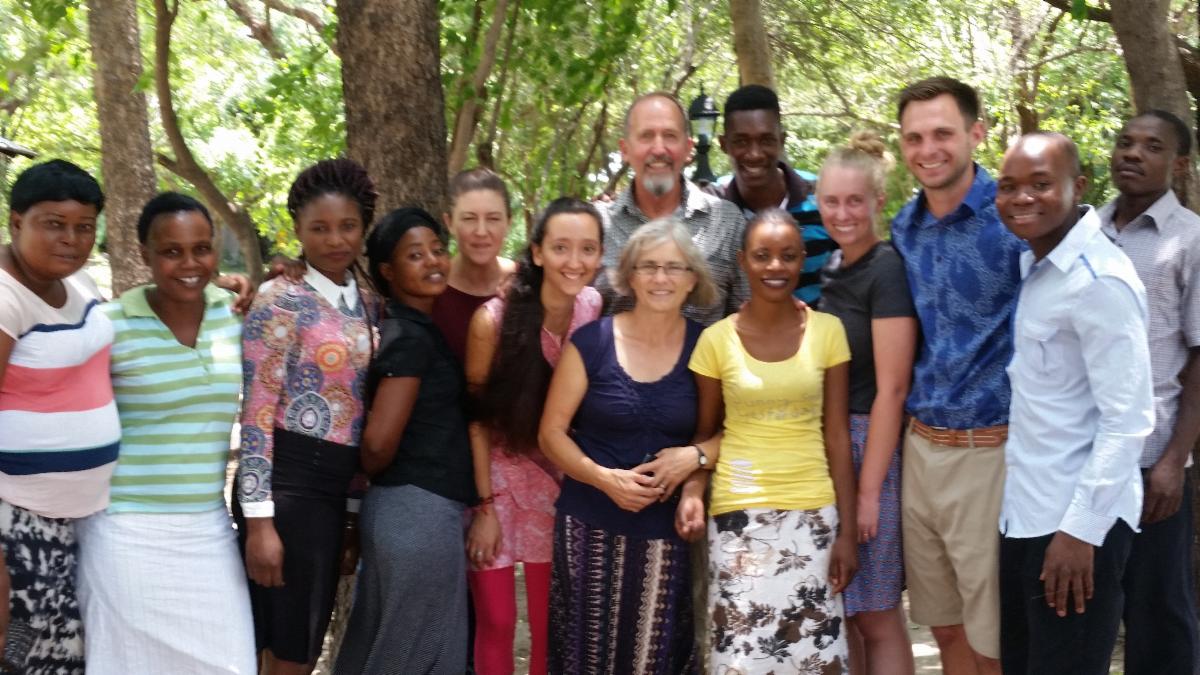
We are used to thinking of Christianity as a religion that offers salvation to all peoples, and makes no distinction based on race or national origin. As long as someone accepts Christ as their Lord and Savior, this person will not be excluded from God’s House.
This is true, and even though throughout the history of Christianity not all peoples have been treated with equity by the ruling classes professing the faith, the idea that the acceptance of Christ is essential for the salvation of the soul prompted even colonizers in the past to make sure that the Christian faith was also taken to all colonized peoples (most of the time in a forcible manner, unfortunately).
In most recent times humanity has become aware of these great mistakes of the past, and the idea of a really inclusive and equitable (but not by any means imposed) Christian faith is prevailing in most countries of the world.
Sadly, separations have existed within the Christian church until recently even in the western world, including America. Although these separations were not seen as exclusion from God’s grace, they have certainly created a sense of division and exclusion from within.
Until a few decades ago, there were churches for white people and for black people (folks with a somewhat dark skin had problems finding their slot). There were also churches where (although not explicitly expressed) you were only truly accepted if you had a certain social standing.
Fortunately, these divisions have been done away with (officially) in most churches in the last decades. Doctrinal differences and issues related to gender identity are still a dividing factor, and the latter issues are creating a greater split in today’s Church Universal.
It would be good to take a look back at what the founders of the church, like St. Paul, and even the Jewish prophets like Isaiah, had to say about who would be accepted in God’s House of Love.
The Jews thought they were God’s chosen people, not only for their own sake, but for all humanity’s sake, because all peoples would be saved by adopting their true religion. Those who worshiped idols and false gods would not take part in salvation, but foreigners (and even eunuchs who were excluded from taking part in worship by the Law) would be granted a place in God’s House if they accepted the true religion, according to Isaiah.
In chapter 56, the prophet says, “Do not let the foreigner joined to the Lord say, ‘The Lord will surely separate me from His people’, and do not let the eunuch say, ‘I am just a dry tree’, for thus says the Lord: To the eunuchs who keep my sabbaths, who choose the things that please me and hold fast my covenant, I will give, in my house and within my walls, a monument and a name better than sons and daughters; I will give them an everlasting name that shall not be cut off.”
A name better than sons and daughters! An everlasting name that shall not be cut off! What could be more eloquently inclusive than that?
As to St. Paul, he even uses his apostleship to the Gentiles as a contrast to the rejection of Jesus’ New Way by the Jews. As a Jew himself, he wishes that the acceptance of this New Way by people who used to worship idols would open the eyes of the Jews, and he laments that this is not happening, except in a few cases.
In his letter to the Romans, chapter 11, he states, “Inasmuch then as I am an apostle to the Gentiles, I glorify my ministry in order to make my own people jealous, and thus save some of them.”
The only separation proclaimed in the Holy Scriptures is for those who stubbornly refuse to let God’s all-encompassing Love inhabit in their hearts and minds, and consequently cannot “maintain justice, and do what is right…and refrain from doing any evil”, as Isaiah affirms.
For all others, as the prophet says, “my house shall be called a house of prayer for all peoples.”
Fr. Carlos Expósito, Rector
|
RETURN TO TOP
The Urge to Save Others
This Sunday's Reflection - August 13, 2023
Get it in PDF form with calendar

There is great frustration when one knows how someone could be taken away from a life of misery to a much better life; one knows what the way is, and yet, the other person simply does not seem to care and even refuses to hear you.
Most of us have faced a situation similar to the one described above, with a relative or friend, or maybe it has been the other way around, and you are the person whom someone has tried hard to save without success.
Nevertheless, Jesus has warned us all about the possible hypocrisy of trying to help others when we ourselves need greater help. First, we must remove the beam from our own eyes so we can see better to remove the straw from our neighbor’s eye.
Even so, there are people who authentically feel really distressed when they fail to be able to lead others to the way of true and abundant life, once they have experienced it themselves.
Jesus also warned His disciples that the Good News of God’s Reign of Love would not always be accepted. Although He certainly commanded His followers to spread the Good News of Salvation to the known ends of the world, He also told them to shake out even the dust of the earth from the places where the message was not received, and simply move on to where there were people willing to hear and heed God’s Word.
St. Paul was a relentless Apostle. He was called by our Lord Jesus Christ to carry the Good News to the Gentiles, which was a hard task indeed.
He found opposition at first from the rest of the Apostles, who were convinced that salvation was only for those who followed the Law. And he also found opposition from the Jews who refused to hear of any “New Way” and considered his preaching heretical.
At the same time, making converts in the pagan world was not an easy task. Paul went through many ordeals during his ministry, and even after he had founded some churches among the Gentiles, he often found that they were somehow following the old pagan ways and had to admonish them frequently.
But Paul could never forget who he was. Although he understood that his mission was mainly directed to the Gentile world, his love for his own people never allowed him to feel content.
In his Letter to the Romans Paul states, “I have great sorrow and unceasing anguish in my heart. For I could wish that I myself were accursed and cut off from Christ for the sake of my brethren, my kinsmen according to the flesh.”
Paul was indeed a true follower of Him who would value others’ salvation to the point of self-sacrifice, the Christ who gave Himself up on the cross for us all.
As true followers of Christ, we must also have this urge within us to share the Good News of Salvation with the rest of humankind.
Going beyond any limited concept of kinship, our present global world also demands from us Christians a global way of contemplating salvation.
Being content with our own salvation and those of our limited circle of family and friends would make us poor Christians indeed.
The Great Commission is not an option. It is a must.
Fr. Carlos Expósito, Rector
|
RETURN TO TOP
When Human Language Falls Short
This Sunday's Reflection - August 6, 2023
Get it in PDF form with calendar

We present-day Christians base our faith mostly on what we have received through the scriptural witness of those who wrote the books comprising the Old and New Testament, the latter being the main foundation of our beliefs.
We also rely on the ancient traditions of the Church Universal—a direct heir of the Apostles and their teachings—, and in the constant inspiration of the Holy Spirit working in each of us and in the body of Christ as a whole.
In addition, we use reason as a tool given to us humans by the Creator, to corroborate what the faith teaches us.
The New Testament Books—unlike most of the Old Testament ones, which sometimes took centuries of oral tradition before they were put in writing— although obviously written several decades after Jesus’ Resurrection and Ascension, did not have to wait such a long time to be put into their written form. Some of their writers were even eyewitnesses of the things they wrote about.
Even if the letters attributed to Peter, for instance, were not written by his own hand, but by a disciple using his name, the things this disciple wrote were likely what he heard directly from the Apostle’s mouth, so this constitutes a fairly trustworthy witness of what is being told.
According to the Gospels, within the inner circle of twelve disciples, Peter (together with John and James) belonged to a more intimate circle of three whom Jesus made partakers of special healing and resurrection events, and of his glorification on Mount Tabor, also known as the Transfiguration.
Peter was the disciple who first confessed that Jesus was the Christ, the Chosen One, the expected Messiah, God’s beloved Son. Although he was unable to remain faithful during Jesus’ trial, and denied Him three times as Jesus had predicted, he was later on restored to a full relationship with his master after the Resurrection.
What Jesus required of Peter so that his affirmation of love for his master became credible, was a total commitment to lead and pasture Jesus’ sheep. And this is what Peter did throughout the rest of his life, until he was martyred on account of his faith.
In the Second Letter attributed to Peter he announces that his death is near, and insists that the ones that through his proclamation have decided to embrace Jesus’ Way of Love keep the faith based on the real witness that he has given them.
Peter makes reference to what he, together with John and James, were able to witness in person at Mount Tabor: Jesus’ Transfiguration.
Interestingly, though, Peter does not refer to the marvel they witnessed with their eyes—Jesus’ transfigured body, or even the presence of Moses and Elijah with Him.
Instead, Peter refers to what they heard from God Himself. This is how Peter puts it in this second letter: “For He (Jesus) received honor and glory from God the Father when that voice was conveyed to Him by the Majestic Glory, saying, ‘This is my Son, my Beloved, with whom I am well pleased.’”
So for Peter the Majestic Glory is essentially conveyed through God’s Words spoken to Him and to them. Although Peter does not say it here, the voice also commands, “listen to Him.”
As Peter goes on to say, “we have the prophetic message more fully confirmed.”’ All that the Law and the Prophets had foretold about the coming of Him who would save us from the power of sin and death was now confirmed by that voice coming from God Himself, and Peter, together with John and James, were first-hand witnesses of this wonder.
As 21st-century Christians we have not seen or heard what these first disciples were able to see and hear, but we have the certain witness of those who wrote these books to inspire and guide us in our faith.
As Peter himself puts it, “no prophecy or scripture is a matter of one’s interpretation, because no prophecy even came by human will, but men and women moved by the Holy Spirit spoke from God.”
Fr. Carlos Expósito, Rector
|
RETURN TO TOP
When Human Language Falls Short
This Sunday's Reflection - July 30, 2023
Get it in PDF form with calendar
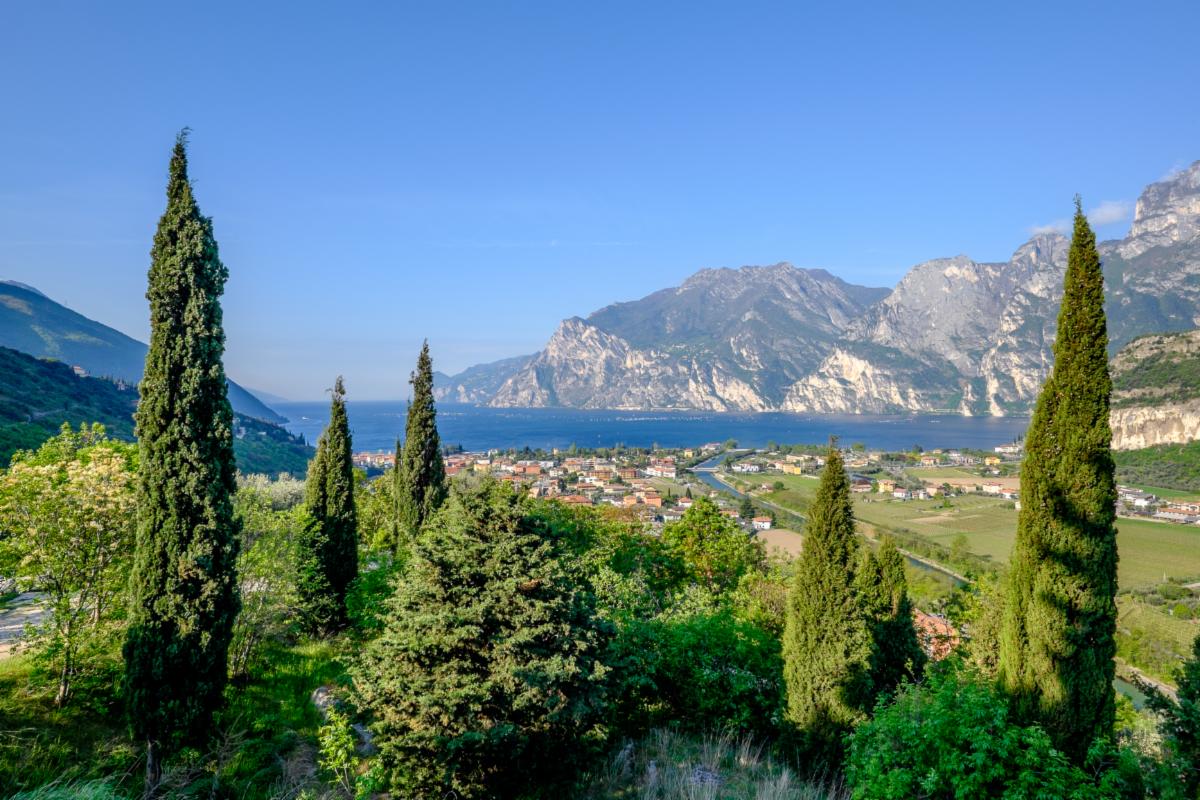
At certain times in our lives, we experience such deep feelings that we are short of words to express them. This may be a time when we have suddenly been struck by the magnificent beauty of creation, or when some overwhelmingly good or bad event has caught us by surprise. At such times, the only thing we can do is be openmouthed in awe, or utter inarticulate sounds.
As humans we are prone to believe that only articulate language makes sense. After all, this is what distinguishes us from the rest of the animal species.
Articulate language does make sense, and it is a good habit to use it properly for efficient communication. In the case of communal prayer, for instance, being able to articulate the prayer in such a way that it is understood by the community is a good practice. If foreign languages are used, it is always recommended that the proper interpretation be provided.
St. Paul was always fond of order and common sense. In his First Letter to the Corinthians, he recommended to the church that whenever someone prayed in a language not understood by the rest—whether it was simply a foreign human language or a so-called “angelic tongue”—it should always be interpreted by someone to the rest, because the prayer is meant to be a means of edification of the faith. He did not object to private prayers being said in unintelligible languages though.
When it comes to edifying our loving relationship with the Creator, which is after all the main purpose of prayer, it is hard to be always coherent and articulate. Recognizing our weaknesses before our Creator is a must for real reconciliation to take place.
The feeling of inadequacy that must accompany a sincere acknowledgment of our weaknesses is not easy to articulate because it is usually too deep for words. Then the Spirit comes to our rescue.
The language of the Spirit is too deep for us humans to grasp. The Holy Spirit is God Himself, and He does not need to use human language to express feelings. What the Holy Spirit wants to express on our behalf is our deep longing for our communion with the Creator. A deep longing is much better expressed with sighs than with words. Human language will always fall short of expressing such a deep longing.
As St. Paul puts it in his Letter to the Romans, “The Spirit helps us in our weakness; for we do not pray as we ought, but that very Spirit intercedes with sighs too deep for words.”
However, being aware of our shortfalls in our relationship with our God and expressing this feeling should not make us sad. It is a first step in our path to reconciliation. If our love for God is genuine, as St. Paul says, “all things work together for good.”
And then he adds, “If God is with us, who is against us? He who did not withhold His own Son, but gave Him up for all of us, will He not with Him also give us everything else?”
Even if our human understanding and language fall short of expressing what we ought to express, we have the Holy Spirit and Christ Himself interceding for us. As long as we willingly allow these intercessors to work in our favor, we should fear nothing.
We have been called according to God’s loving purpose to bring about His reconciling work in this world. And we are destined to share in Christ’s perfect communion and glory.
Our deep sighs of longing will surely turn to pure laughter because it is God’s will that it be so.
Fr. Carlos Expósito, Rector
|
RETURN TO TOP
Children and Joint Heirs with Christ
This Sunday's Reflection - July 16, 2023
Get it in PDF form with calendar
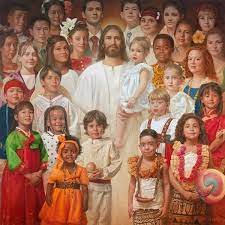
Understanding that we are our Creator’s children may not require a great intellectual exercise. After all the first Book of the Bible makes clear that human beings were created in God’s image and likeness, and Jesus was certainly not the first Jew who called God “Father”, although perhaps He was the first one who called Him “Abba” (Dad).
Jesus did encourage His followers to cultivate the close relationship that He enjoyed with the Creator, and when talking to the disciples He often referred to God as “my Father and your Father”. When requested to provide a model prayer by His closest disciples, He began the prayer with the words “Our Father.”
The New Testament writers preferred to reserve the title of Son to Jesus Christ, in line with the Messianic prophesies that called the Messiah “God’s beloved Son.”
That does not mean that we are not all God’s children.
The Christian doctrine that evolved in the first centuries and is reflected in the Creeds, refers to Jesus Christ as God’s “begotten, not created Son”. We are created by the Father, whereas God’s uncreated Son, who became flesh in Jesus, was begotten by God.
St. Paul uses the image of adoption to refer to the way in which, by God’s grace and power, we become true children of God.
It is important to remember that in Jesus’ time, and centuries before and after, being adopted by someone as son or daughter conferred the same status as being a natural child.
Nowadays people feel there is a certain difference between being an adopted child and a natural one, even though there are families who provide adopted children with the same care and love as if they were their own children. And that is the way it should ideally be.
I have never totally agreed with St. Paul’s idea of being adopted children, not because I do not understand that in his mind it would confer us the same rights and benefits, but because it gives me the impression that human beings had not been God’s children before.
I do not think that is what Jesus had in mind when He taught his disciples to pray “Our Father”.
St. Paul was probably stressing the idea that it is through God’s Spirit and Christ’s saving grace that we become God’s real children, in the sense that we are then willing to fulfill God’s will and follow Christ’s Way of Love.
St. Paul claims in his letter to the Romans that we have received “a spirit of adoption”, which now enables us to cry, “Abba!”, just like Jesus did.
He also reminds us that if we are children, “then heirs, heirs of God and joint heirs with Christ.”
This is the Christian promise. What St. Paul reaffirms here is what Jesus promised His followers, and even if it may sound “too good to be true”, we know it to be true because we believe that God incarnate cannot and will not lie.
It will be our true fate, if, as St. Paul states, “we suffer with Him so that we may also be glorified with Him.”
Fr. Carlos Expósito, Rector
|
RETURN TO TOP
Setting the Mind on the Spirit is Life and Peace
This Sunday's Reflection - July 9, 2023
Get it in PDF form with calendar

In his Letter to the Romans, chapters 7 and 8, the Apostle Paul deals with the constant battle between what he calls “the flesh” and the Spirit of God that indwells us.
To make this contrast, St. Paul does not use a third person, as if he himself were no longer involved in this constant battle. Instead, he refers to himself in the first person singular and in all honesty declares, “Wretched man that I am! Who will rescue me from this body of death? Thanks be to God through Jesus Christ our Lord!”
This strong declaration, coming from St. Paul’s very heart, clearly acknowledges how hopeless it would be to count on our own strength only for this ongoing battle in our inner selves.
Only in Jesus Christ and His Spirit of Truth can we find the needed help to come out victorious from such a battle. And the reason for this is that Jesus Himself defeated the dark forces that lead us astray from God’s Way of unconditional love and into our self-centered complacency and interests.
By becoming flesh in Christ our Lord, and by dying and being raised again, God was able to defeat the same forces that keep us slave to sin. Thanks to this self-giving sacrifice, Jesus Christ has freed us from the oppression of the law that punishes us for our constant transgressions.
This does not mean that Jesus Christ condones our transgressions. He is willing to forgive them, as long as we show true repentance in our lives though.
What St. Paul calls “the flesh” is not so much the physical part of our being—God called all that He created good, and this certainly includes our bodies—but the tendencies in the physical part of our being that make us prone to self-satisfaction only, without regarding the rest of humankind and creation.
Paul contrasts the physical part with the mind, as something superior and with a closer link to the Spirit. However, the mind can also become “fleshy” in the sense that it is filled mainly with self-centered thoughts.
As St. Paul himself clarifies later in this text, what makes the difference is where you set the mind on. The mind itself cannot save us from sin. It needs to be trained to become obedient to God’s law of love.
Having the mind of Christ is what will really save us. And while He was on this planet, Christ’s mind was always occupied in doing God’s will: performing acts of loving service wherever He went.
It is true that by His loving self-giving sacrifice Christ has opened for us the way to salvation, and that by our own efforts only we will never defeat the “fleshy” part of our being. But it is up to us to set our minds on the right aim. This is a voluntary act, and God, who created us in perfect freedom, will not violate the freedom of our minds.
As St. Paul puts it, then, “To set the mind on the flesh is death, but to set the mind on the Spirit is life and peace.”
Fr. Carlos Expósito, Rector
|
RETURN TO TOP
Life-giving Death
This Sunday's Reflection - July 2, 2023
Get it in PDF form with calendar
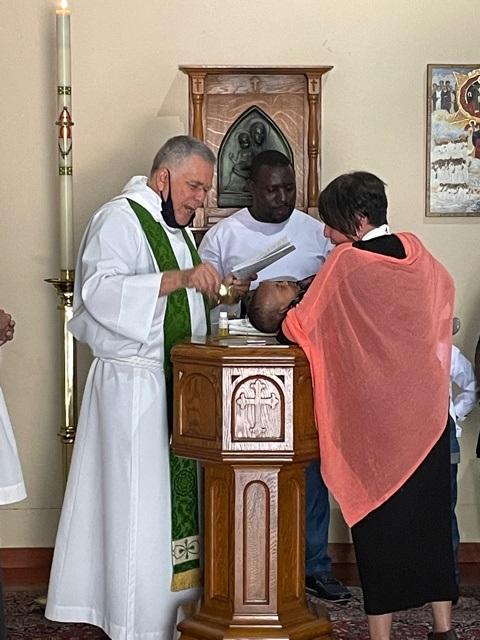
Some of the tenets of our Christian faith seem contradictory to many and can only be grasped in the light of our sacred scriptures and traditions.
Death is seen as the greatest enemy of humankind, and all forms of higher life in general. We dread our own death and that of our loved ones. We know it is a reality, but most of the time would rather keep it away from our conversations and prefer to use euphemisms to refer to it.
We, unlike people from earlier times, have placed our burial places as far away as possible from our living quarters. For hygienic reasons mainly? Perhaps…
Nowadays it is uncommon to have our loved ones dying at home, surrounded by all family members. Instead, people are taken to hospice places, where they receive palliative treatment to make their passing as peaceful and painless as possible, but in most cases their loved ones are not present at the precise moment of passing.
There are exceptions to this practice, to be sure. But generally speaking, modern society prefers to keep death out of sight, and out of mind.
The Christian faith also considers death as a foe to be defeated. The ultimate hope of our faith is that neither decay nor death will have a place in the resurrected life, and this includes not only human life, but the whole of God’s creation.
Nevertheless, New Testament writers often make a use of the term death that differs from the mere physical cessation of life.
One of the terms used is the second death, which refers to the death of the soul; in other words, the state in which the soul has been totally separated from God’s life, by its own will. This is the death that true Christians avoid at all costs.
A true follower of Christ will not fear physical death because there is the sure hope of the resurrected life in Christ. It does not mean that we do not mourn the physical loss of our loved ones—that would not make sense—, but that even while suffering we always have the inner joy of the assuredness of God’s infinite love, which defeats even death.
But death is also used in a positive way by New Testament writers. First and foremost, we have Christ’s death as a redeeming death for us all. It was through His death that Jesus Christ our Lord conquered the dark powers of death and sin, and opened for us the way of resurrected abundant life in Him.
Jesus’ death is also seen as a symbol of our own death to sin—the death of our old self, which is then transformed into the new glorious self in Christ’s resurrected life.
This is what our Christian baptism means for us.
When we are immersed in the waters of baptism (or this water is poured on us when baptism by immersion is not practical), this act constitutes the death of our old sinful self, and when we come out of the water, we are reborn to our new life in Christ.
This is the life-giving death all Christians must constantly long for. It is enacted once in our lives during our baptism, but baptism is in fact an initiation rite. It marks the beginning of this death and rebirth, but this is a life-long process (or even one that extends beyond our physical death).
As followers of Christ, we must strive to put an end to our slaving sinful tendencies, so that our lives may be transformed into the full stature of Christ’s glorious life.
In his letter to the Romans, St. Paul states this idea in an unmatchable way. In chapter 6, he says, “For if we have been united with Him in a death like His, we will certainly be united in a resurrection like His.”
And he continues by stating, “The death He (Christ) died, He died to sin, once for all; but the life He lives, He lives to God. So you also must consider yourselves dead to sin and alive to God in Christ Jesus.”
Fr. Carlos Expósito, Rector
|
RETURN TO TOP
Wise as Serpents and Innocent as Doves
This Sunday's Reflection - June 25, 2023
Get it in PDF form with calendar
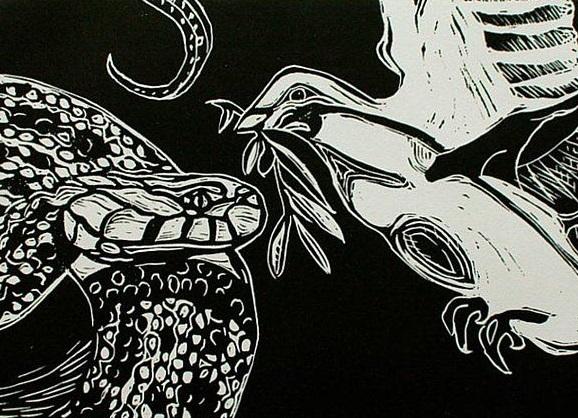
Serpents have always been known for their shrewdness in approaching their preys inadvertently, and then attacking them at the right moment. For this reason, they have been seen as a symbol of wisdom in many ancient cultures.
The Bible story in the Book of Genesis has the serpent as the creature that induces human beings to lose their “innocent” stage of perfect harmony with the Creator, and become aware of good and evil, thus breaking this initial harmonious stage, and initiating a “fallen” conscious stage where gracious redemption would only become possible by the self-giving sacrifice of God incarnate, the Son of Man.
Doves, on the other hand, have always represented innocence. They are seen as peaceful creatures that would not normally be suspicious of any threats and would be confident enough to expect to be treated with love. The Bible narrative in Genesis uses a dove as a symbol of the moment when, after the flood, dry land has reappeared, and the earth has become a habitable place again. When the dove brings a branch of olive in its beak, Noah knows the land is dry again.
The dove is also used in the New Testament as a representation of the Holy Spirit, descending upon the Son of Man at His Baptism in the Jordan River.
There seems to be a connection between this new use of the dove symbol and the previous one, in that the dove with the branch of olive that Noah received in the Ark is a foretaste of the Covenant of the preservation of nature and humankind that God declares after the flood, whereas the latter is a symbol of the New Covenant of redemption established through Christ’s blood, and His constant presence with us and the whole of creation to remind us and guide us in God’s Way of Love.
When Jesus sends out his twelve disciples to carry out God’s reconciling mission, He instructs them to be “wise as serpents and innocent as doves”. As contradictory as this injunction may seem, there is great wisdom in it.
Jesus’ followers can no longer be in the initial state of innocence of humankind. They need to be totally conscious and aware of the world they are living in. It is a hostile world, full of contradictions and selfish interests. It is a world where the ruling powers are led by ambition and fear of losing their power. In this world Jesus’ Way of Love is mainly alien, and represents a threat to the interests of the ruling classes.
So, Jesus’ followers must be ready to speak and act in this world. They should anticipate persecution, prison, and even death. They must be aware of rejection and betrayal even within the family.
But they will be guided by the Holy Spirit, represented by the dove at Jesus’ Baptism. They will be courageous, but not violent. They will speak out the words that the Holy Spirit put in their mouths, but will not retort with insolence or virulence.
They will trust the Holy Spirit’s right discernment at all times, and act peacefully in all circumstances, even when they are being unjustly slandered and attacked. They do not need to fear physical death, which can only kill the body, but rather fear the true death of the soul, when we are led by the dark forces of evil that sever us from God’s life and love.
For us who claim that we are the present-day followers of Jesus, His injunction is as valid today as it was then. Let us then be “wise as serpents and innocent as doves.”
Fr. Carlos Expósito, Rector
|
RETURN TO TOP
Proclaiming the Good News with Boldness
This Sunday's Reflection - June 18, 2023
Get it in PDF form with calendar
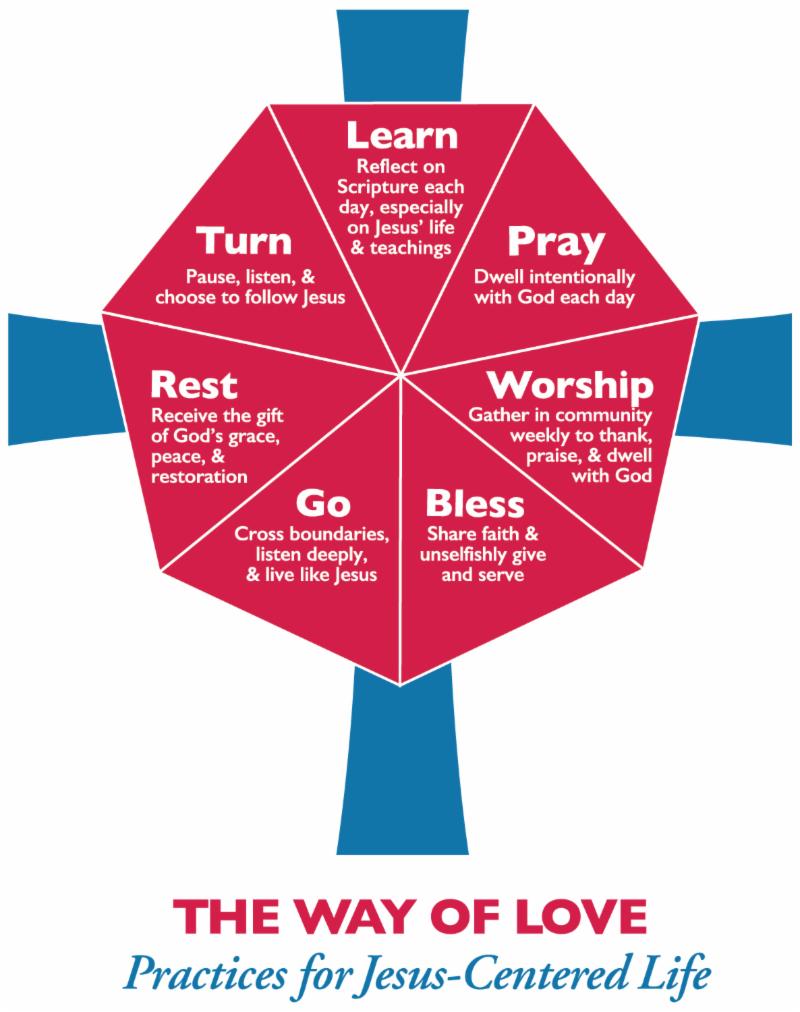
Jesus’ ministry on this planet was certainly a bold one. His way was a radical way of love and compassion which contradicted many of the generally held beliefs about the way society operated at that time. His message sounded odd, other worldly, and probably unattainable. That is why so many accused him of lunacy, or being allied to devils.
Jesus’ proclamation about God’s kingdom—a governance based on true justice, compassion, and unconditional love for all—was not a mere preaching, although he did preach and did it really well. Most of the time it was accompanied by powerful signs of this kingdom—acts of compassion and healing, of restoration of life and wholeness, of acceptance of the sinner and marginalized.
What Jesus understood early in His ministry was the need to expand this proclamation, first and foremost to the ones He had been called to minister: those of the House of Israel.
He therefore called an inner group of followers that would in turn call others to follow, thus expanding the work further to reach more and more people in this redeeming endeavor.
This inner group of twelve followed the rule of discipleship, and spent most of the time with Jesus, listening to His teachings and witnessing His powerful signs, but were also gradually given the opportunity to take part in the ministry, so as to be prepared to act on their own when Jesus had to depart.
When Jesus felt they were ready to minister on their own, He gave them precise instructions to go to the House of Israel. Jesus knew this was a hard task in which they would find obstacles and temptations, indifference, and even rejection.
So the proclamation had to be done boldly, and accompanied by courageous love and life-giving signs. It also had to be done realistically, not stubbornly, being ready to move on when people were not willing to receive it.
Moving on by no means meant giving up the saving mission, but simply understanding that it would not be a good idea to insist on proclaiming the greatest of all news to deaf ears, when there were others eager to hear in the next town.
Our current world resembles Jesus’ world and that of the first centuries after Christ’s coming to this planet in the sense that Christ’s teachings are not generally accepted. For several centuries (4th to the mid 20th century) Christianity became an official religion in many parts of the world.
This, however, did not always necessarily mean that everyone was a true follower of Jesus’ radical way of love. It simply meant that Christianity was taken for granted.
Some of us—those who were born in or before the 1950’s—may feel some kind of nostalgia for the era of Christendom. However, living in a time when Christ’s saving message has to be proclaimed with boldness and truth, with true compassion and relentless love, even in the midst of scorn and rejection, gives our proclamation a sense of authenticity that relates to the first followers of Jesus in His time.
May we always have the confidence, strength, and sustaining inspiration of God’s Spirit of Truth to carry out with boldness the proclamation of Christ’s Good News.
Fr. Carlos Expósito, Rector
|
RETURN TO TOP
Hoping Against Hope
This Sunday's Reflection - June 11, 2023
Get it in PDF form with calendar

Our Christian faith is all about hope. It is a hope based on our certitude that God’s promises will be fulfilled, even if the objective circumstantial evidence seems to contradict that hope.
Come to think of it, most of the time our hope looks outrageously contrary to the hopelessness that surrounds us in this world of ours. We only have to take a look at the daily news of wars, conflicts, wanton killings, extreme poverty, injustice, homelessness, and natural disasters raging in this world, to practically lose all hope.
Even so, our hope is not only that this world can and will be made better, but that we will share a life filled with so much goodness that not even our wildest imagination can envision its glory and splendor.
This kind of hope is akin to the one that Abraham, the father of all nations, had through his unwavering faith in God’s promises to him. Although there was no way he could have an objective certitude in his descendants inheriting the world, he firmly believed God and left everything behind to move to the land where God was telling him to go.
This is what St. Paul calls “the righteousness of faith” as opposed to the righteousness of the adherents to the law. For those who believe through faith—complete trust in God’s promises, as opposed to the illusion that they can gain paradise by strictly adhering to the law—everything rests on God’s grace only, and is not perceived as deserved or gained through the fulfillment of commandments.
This is the promise that St. Paul is now sharing with the Gentiles, regardless of their adherence or not to Jewish laws.
To make his claim more credible, St. Paul quotes Genesis to forward the idea that Abraham is “the father of us all”, in the part where God says to him, “I have made you the father of many nations.”
Abraham really hoped against hope. Nothing in his life showed any hints that this promise would become a reality. Both he and his wife were already old and had no descendants, so how could this even start to happen? Even so, he kept on believing in God’s promises and his wife Sarah had a son at an advanced age, who was the forefather of the Jewish tribes.
So life itself proved God’s unfailing promise true, even if Abraham himself was not able to see it in his lifetime.
In Chapter 5 of his book, the prophet Hosea announces the time when “God will revive His people, and will raise them up, that they may live before Him.” And what God demands from the people is not adherence to the ritualistic system of the law. God desires “steadfast love and not sacrifice, the knowledge of God rather than burnt offerings.”
In Matthew’s Gospel, Chapter 9, Jesus makes reference to this when He rebukes those who criticize Him for eating with “tax collectors and sinners”. He says to them, “Go and learn what this means, ‘I desire mercy, not sacrifice.’
The hope Christ offers is not related to the self-righteousness of those who count on their belonging to the “chosen people” and “fulfilling the law”. He offers hope to those who used to live in hopelessness for being considered sinners and outcasts.
Jesus says to them, “For I have come to call not the righteous but sinners.” From that moment on, those who listened to Him then—and also we who listen to Him nowadays—are free to start hoping against hope, and live a life filled with the hope that comes from God’s sure promise of true and abundant life.
Fr. Carlos Expósito, Rector
|
RETURN TO TOP
In God’s Relational Image
This Sunday's Reflection - June 4, 2023
Get it in PDF form with calendar
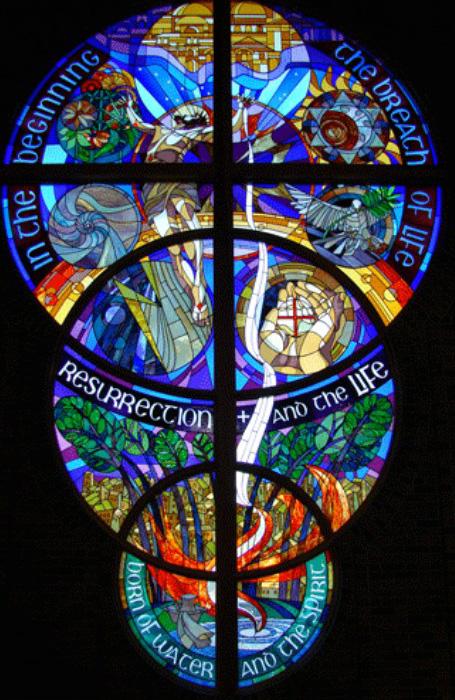
Trinity Sunday is here to remind us of the essence of our faith: the One Triune God. Nevertheless, it is no use pretending that just because we affirm and reaffirm this trinitarian dogma we have a total grasp of it. We do not and never will, until the time when we are in perfect communion with our God.
The fact is that this is a mystery of our faith that cannot be understood with our finite minds. What we can do, though, is live out what the living One God in three persons implies for our own lives as followers of Jesus’ Way of Love.
The trinitarian nature of God means, first of all, that God is relational in Himself, and the nature of this relationship is Love.
Jesus Himself insists on the Father’s love for Him and vice versa. He also insists (particularly in John’s Gospel) that we, His followers, must show for one another the same love that exists between Him and the Father, and between Him and us.
Jesus’ prayer to the Father—Chapter 17 of John’s Gospel—is that we—His followers—may be related to one another, and to the rest of humankind and the whole of creation, in the same loving way that the One Triune God is related to Himself.
In the Genesis story that is read on this Sunday (Genesis 1 and part of Genesis 2) we notice how God shows His inner reflection by using a plural form (“let us make humankind…”) precisely and only when He creates humankind. That seems to emphasize the relational nature of God in the light of the creation of His likeness and image: the human creature.
The second important thing to notice is that God explicitly creates humankind to be in relationship: “male and female He created them.”
Furthermore, God addresses the humans He has just created and thus starts a loving relationship with them which begins with His blessing: “God blessed them, and God said to them: Be fruitful and multiply, and fill the earth and subdue it, and have dominion over the fish…and over every living thing that moves upon the earth.”
Here we notice how God intends the human creature to multiply, and not only be in loving relationship with one another, but also care for the rest of the living creatures God has created.
God not only tells the human creatures what concerns them directly, but even tells them about the plans that He has for the rest of the creatures. So He says, “and to every beast of the earth, and to every bird…I have given every green plant for food.”
It becomes evident that God’s intention for the creatures He has created in His image and likeness is to enter into a loving relationship with Him, with one another, and the rest of the creatures, in a way that shows the very essence of His inner loving relationship.
The God we Christians worship is One, but is manifested to us humans in three persons that are united in a perfect loving relationship.
Theologians have defined this inner relationship of the three persons with the Greek term peichoresis, whose meaning is interpenetration or co-inherence. It also refers to the fact that although we usually identify each person of the Trinity with a specific manifestation (The Father as Creator, the Son as Savior, and the Holy Spirit as Counselor), they all overlap.
What really counts most for us is the fact that if Our God Himself is relational, and the essence of His relation is Love, so must we, the creatures created in His likeness and image show this same kind of loving relationship in our lives.
Fr. Carlos Expósito, Rector
|
RETURN TO TOP
Manifestations of the Spirit for the Common Good
This Sunday's Reflection - May 28, 2023
Get it in PDF form with calendar
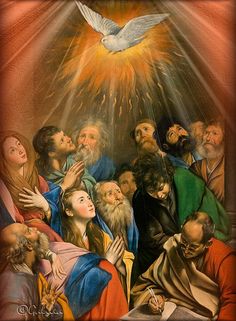
The Feast of Pentecost brings to mind the exuberant manifestation of the Holy Spirit among the first followers of Jesus after His resurrection and Ascension. Most pictures depict the tongues of fire over each of the disciples gathered in one place, and the disciples proclaiming the message of salvation to all who listened to them.
This depiction follows what the Book of Acts says in chapter 2. The narrative tells us that they were all filled with the Holy Spirit, and began to speak in other languages, “as the Spirit gave them ability.”
The speaking in tongues here is not the same phenomenon that Paul mentions in some of his writings, which is characterized by speaking in unintelligible tongues (the so-called Angelic tongues) which need to be interpreted if others are to benefit from the message.
What happened on Pentecost Day, according to the Book of Acts, was that the people gathered in Jerusalem from different nations were all able to hear the disciples speak “about God’s deeds of power” in their own languages. The phrase “God’s deeds of power” is not explained here, but it is only logical to assume it refers to God’s plan of salvation for all through Jesus Christ, which was obviously the disciples’ main preaching theme.
The Pentecost event has been described as the antithesis of what happened in the Tower of Babel. In the Babel narrative the people who spoke a common language started to speak different tongues and were no longer able to communicate with one another. It is as if the disconnection with God’s loving purpose—symbolically shown in their ambition to build a tower reaching the heavens—had also brought about the same disconnection among them, thus creating chaos and confusion.
The plurality of tongues in the Babel story is a synonym of disunity and chaos.
However, the plurality of tongues in the Pentecost experience is just the opposite. It is this plurality that enables each of the listeners to hear God’s wondrous deeds of salvation in their own languages. We can assume the most of these people were able to understand Aramaic or Greek, which served as common languages in the region at that time, but hearing the divine things spoken in the language of one’s heart is a totally different experience!
The speaking in tongues was not given by the Spirit to the disciples as a gift to attest that they were filled with the Holy Spirit. It was not a mere show off. It served a specific purpose. It served the common good.
One of the Spirit’s gifts mentioned by St. Paul to the Corinthians in his First Letter, chapter 12, is the discernment of spirits. Just as it was then, it is nowadays essential also to discern the spirits. People claiming to be inspired by the Holy Spirit abound now more than ever, even in social media.
One good test of authenticity for the Holy Spirit is the question, “Does it serve the common good?” As St. Paul himself states in this part of the letter, “To each is given the manifestation of the Spirit for the common good.”
It is One Spirit that sustains all of Christ’s followers, and this One Spirit gives each of us particular gifts that are to be put to the service of the common good.
When someone manifests a gift that serves only self-centered interests, we can immediately discard that the Holy Spirit is at work in this person. God’s essential feature is unconditional and all-inclusive love, and His Holy Spirit is the Spirit of unity, enabling us, through His inspiration, to make ourselves useful to pursue the common good.
Fr. Carlos Expósito, Rector
|
RETURN TO TOP
Something Strange Happening
This Sunday's Reflection - May 21, 2023
Get it in PDF form with calendar

Bad things have always happened to everyone, including good people, but when someone decides to become a faithful follower of Him who is Love incarnate, and this person lives according to the rule of love, it is somehow “logical” to expect that mostly good things will happen to this person. But is this really so?
The Old Testament writers in general insisted on the law of retribution. God would give those who followed His commandments a good and prosperous life, with offspring and many years to live. Not receiving these was seen as a sign of someone who had not followed the commandments, of someone who had sinned.
It was only during the Hellenistic period (particularly in the Wisdom books written during this time) that this premise was not so much taken for granted, and some of these books (Job, for instance) contain reflections on the paradox of how people who live according to God’s Law also suffer. But there is a sense of final retribution if these suffering persons remain faithful to God.
The first followers of Christ lived under the rule of the Roman Empire. This empire was content with letting each nation follow its religion, as long as they would not interfere with the emperor’s authority and standing, which included worshipping him as a deity.
The Jews were a particularly hard bone for the Romans to swallow. They were really adamant in their belief in the only God, which could not be represented by any images. So any worship of a human Emperor was out of the question. Even so, the Jewish authorities tried to compromise by respecting the Emperor’s authority and complying with their taxes.
Although there was always a tension between the Jewish authorities and the Romans, the former tried to make sure that no uprising took place, in the hope that they could sustain their ruling positions among the population.
When the Jesus movement started to gain force among the people, the Jewish authorities panicked. Jesus’ followers clearly understood Him to be the Messiah, the King that would bring about God’s Kingdom and would rule the nations.
Apart from the fact that the Jewish authorities did not believe Jesus to be the Messiah, they were also afraid that the Roman authorities would turn against them if the people followed someone whom they proclaimed as king. So they decided to turn Him over to the Roman authorities and have Him crucified.
They hoped this would put an end to the Jesus’ movement, but obviously it did not. After Jesus was raised from the dead, the movement gained tremendous strength, and the number of converts multiplied each day. The movement then began to expand out of Judea, to the neighboring regions, and beyond, into the pagan world.
Now the Jewish authorities had a greater fear. They saw how many of the Jews were being converted to the new movement. And the Roman authorities also suddenly faced this new movement, born within the Jewish religion, but with a totally radical uncompromising sense of faithfulness to Jesus Christ, and to one another within the community of faith.
They could not accuse this new movement of any mischief or misconduct, or of trying to promote revolts and overturn governments. But obviously these followers of Jesus’ radical Way of Love would not compromise with any unjust behavior or yield to false worship, and this became a problem for the Empire.
So the first Christians easily became the victims of slander and false accusations of all sorts. They were persecuted by both the Jewish authorities and the Romans. Some of them were imprisoned and others were martyred.
Following the logic of retribution, strange things were happening to those who never ceased to do good to others.
As it was then, it continues to be even to this day. We may not suffer the kind of persecution that the first Christians were subjected to, but being a true follower of Christ will bring us the scorn and opposition of those who would rather follow the law of self-centeredness, and ruthless ambition of wealth and power.
The Apostle Peter, in his First Letter, deals with this issue in chapter 4. He begins verse 12 by stating, “Beloved, do not be surprised at the fiery ordeal that is taking place among you to test you, as though something strange were happening to you.” Then he continues by affirming, “But rejoice insofar as you are sharing Christ’s sufferings, so that you may also be glad and shout for joy when His glory is revealed.”
Suffering has no merits in itself. No one should seek suffering per se. But when one suffers for faithfully following Him who is the Way, the Truth, and the Life, it is more than worthwhile going through the ordeal!
Fr. Carlos Expósito, Rector
|
RETURN TO TOP
An Unknown God
This Sunday's Reflection - May 14, 2023
Get it in PDF form with calendar

In his zeal to fulfill Christ’s command to preach the Gospel to the Gentiles, the Apostle Paul goes even to Athens, the city with the most shrines and temples dedicated to the pagan gods of the Greeks, but also the city where classical Greek philosophy had flourished in ancient times.
The story in the 17th chapter of the Book of Acts tells us how St. Paul found a way to address the Athenians about the true God. He found an altar with an inscription saying, “to an unknown god”.
Not wanting to leave any possible deity out of their worship, the Athenians had gone this far. But this is the opportunity St. Paul uses to talk to them about the only God.
He starts by exalting their rigorous religiosity in the fact that they did not even leave out a possible unknown god. He then identifies this god they do not know with the Father of Our Lord Jesus Christ.
In fact, the true God is unknown in the way Athenians “knew” their gods. They had carefully crafted stories about the origin of each of their gods and goddesses, and knew their names well. They even had images to represent them that portrayed their relevant features.
The God of Israel, on the other hand, could not be represented by any image of anything in creation. There were no stories related to His origin, and His name, which was sparsely used by the true worshipers out of great respect, simply meant “I am (who I am)”.
The Hebrews “knew” their God in a totally different way. Their God was the creator of all that exists in all possible visible or invisible realms, and the stories they told and retold about Him were those of His mighty acts of salvation in favor of His chosen people.
They also “knew’ their God in a personal way, through their devotion and prayers, and in a communal way, through their celebrations throughout the year. All their lives were centered around the worship of the true God. Even so, God still looked more transcendent than immanent. There was no right balance between these two dimensions of God.
Jesus came to show them that the transcendent God was also close to them, inside and among them, and that His unconditional love, shown in human form through Jesus Christ, is the very essence of our being, and is to be manifested in our everyday lives when we get to “know” Him in the only way God can be known to us humans—through the manifestation of His infinite love.
To show this true knowledge of God to the Athenians, St. Paul uses a phrase that some of the Greek poets had already used when referring to the deity (probably the Cilician Stoic philosopher Aratus—a contemporary of St. Paul): “in him we live, and move and have our being.” And also, “For we too are his offspring.”
In this way, St. Paul makes clear to the Athenians what our relationship to the true God is, and how it is totally ignorant to try to represent Him “like gold, or silver, or stone, an image formed by the imagination of mortals.”
He then takes the boldest step, and tells them about Jesus Christ, “a man whom He has appointed, and of this He has given assurance to all by raising Him from the dead.”
On hearing this, according to the Book of Acts, many turned away and told Paul they would hear him about this on another occasion. But some did believe and turned their hearts to the true and only God who can save.
Talking about the resurrected life is also bold nowadays, when so many people find it contrary to logic and science. But as true followers of Christ, we should imitate St. Paul in his shrewdness to find the right occasion, and his boldness to tell the truth of our faith.
The Easter message is the central message of our faith: Christ is risen. He is risen indeed, as we shall also be risen if we are faithful in our proclamation through our words and deeds.
Fr. Carlos Expósito, Rector
|
RETURN TO TOP
Becoming the Living Stones of God’s House
This Sunday's Reflection - May 7, 2023
Get it in PDF form with calendar

When we hear or read the expression “God’s House” our everyday experience leads us to think of a building or dwelling place. In fact, many of us speak of the church building as “God’s House.”
Holy Scripture uses images that were familiar to the readers of the time to refer to transcendent realities. This is one of the main differences between the Hebrew Bible and classical Greek Philosophy. The latter uses abstractions and archetypes to refer to transcendence.
Even though we find some of these abstractions in the New Testament due to the inevitable influence of the Greco-Roman world—the concept of the Logos, for instance—they are interpreted from a totally different perspective, which is always linked to the everyday reality of the readers and listeners.
The Logos in John the Evangelist’s writings became flesh in the concrete historical person of Jesus Christ, and dwelt among them. He is transcendent and incarnate at the same time.
So when in John’s Gospel Jesus is talking to His disciples about their full participation in God’s Reign of Love, He does not use abstract philosophical language like “you will be partakers and agents of universal love”, but He talks about what the things they were familiar with.
Jesus tells them about God’s house and assures them that there are many rooms in it, where they will have a place. He even uses a figure in which He Himself goes to this house to prepare a place for them. They can relate to this image. Even so, they have trouble identifying the place where Jesus is going.
Thomas is bold enough to ask questions when he does not understand something that Jesus says. He probably asks the questions they all had in their minds, but none of them dares to ask. For this reason, he has come to be known as the one who doubts or questions. But in fact he did his companions a good service in several instances.
When Thomas asks, “How can we know the way?” (to God’s House), Jesus replies with the well-known phrase, “I am the way, and the truth, and the life.”
Jesus was not trying to be enigmatic or even exclusive—as some have unfortunately interpreted. He was simply pointing to what the disciples knew—His person. They had been with Him for almost three years, listening to His teachings, sharing His life experience, witnessing and taking part in healings and other loving life-giving acts. They had all this first-hand experience that was worth much more than any abstract terms Jesus might try to use.
To make this even clearer, when Philip—another bold speaker in the group—asks Him to show them the Father as sufficient proof, Jesus simply reminds him—and the others who did not dare to ask—of all they had lived with Him and of the works of unconditional love He had done in the Father’s name.
God was transcendent already in the Hebrew Scriptures. He was not conceptualized or argued about in the Bible. The Hebrew Scriptures simply take God for granted and when asked by Moses about His name, God simply replies “I am (who I am).” In other words, it is useless to try to argue about God’s being.
But in the person of Jesus Christ, God can be known to humankind. And by following in His Way of Love we inhabit His house and invite others who do not known Him to come to His house too.
In his First Letter, chapter 2, the Apostle Peter uses a particularly beautiful image to express this idea. He states, “Come to Him (Jesus Christ), a living stone, though rejected by mortals yet chosen and precious in God’s sight, and like living stones, let yourselves be built into a spiritual house, to be a holy priesthood, to offer spiritual sacrifices acceptable to God through Jesus Christ.”
May we always be these living stones making up God’s House.
Fr. Carlos Expósito, Rector
|
RETURN TO TOP
The Endurance That Pleases God
This Sunday's Reflection - April 30, 2023
Get it in PDF form with calendar

Christianity is undoubtedly a faith that commends endurance. Jesus Christ’s life is the epitome of endurance, and his first followers had to endure slander, persecutions, prison, and even martyrdom.
Through the centuries, Christ’s authentic followers have had to endure a lot, particularly those who have tried to keep the faith pure, and those who have gone on mission to foreign and oftentimes hostile lands. Even nowadays there are Christians who literally give their life for being faithful witnesses of Christ’s Way of Love.
There seems to be a contradiction between the claim made by Jesus that He has come “that we may have life, and have it abundantly”, and being willing to put up with harshness and even pain in our lives to be true witnesses of the faith we profess.
It might look as if our Creator were intent in making us suffer. But that is certainly not the case.
Popular wisdom has this saying, “No pain, no gain.” This reminds us that nothing worthwhile comes to us easy in life. This is undoubtedly true wisdom. If we fall into the habit of avoiding all discomfort in our lives, of never getting out of “our comfort zone”, we will become lazy and conformist people, and this is probably the greatest fault of our modern society.
But when it comes to our faith, we are not only talking about making efforts and facing hardships that will make our character stronger. We are literally referring to the possibility of suffering losses and experiencing pain for the sake of our Christian integrity.
What is this abundant life that Christ has promised to give us?
Life can mean different things according to the way we perceive it. Biological life has been defined by science, and we are all familiar with what it means and entails. It is wonderful, and its pinnacle on this planet is human life, but even so it is finite and its decline and end are inevitable.
When the New Testament writers—John the Evangelist in particular—use the terms life and death, they usually mean something other than what we normally understand. True and abundant life is seen as the true expression of God’s love—a life lived in communion with the Creator, with one another, and with the whole of creation. This life transcends biological life. It is not confined by the time-space continuum of our ordinary lives on earth.
This true life is not self-centered, because God’s love is the opposite of self-centeredness. It is all-embracing, unconditional love. This implies that sacrificing oneself for the benefit of others is a common trait of the true life. Just as Christ gave Himself for us, we must be willing to give ourselves to others in love.
Following Jesus’ radical Way of Love entails endurance. The world we live in is not in perfect communion with the law of love. Living our lives in consonance with this law will normally find opposition from many, including those who are in power in our society, and this will make us suffer.
This means we should stand up for justice and promote change in our society. The abundant and true-life Jesus promised us must be our goal, and we must strive to make the changes that bring God’s Kingdom closer to us.
Enduring the consequences of promoting the coming of God’s Reign of Love must not be confused with using violence to follow the political agenda we see fit. There are instances when it may become necessary to overthrow an unjust regime, but the use of violence and death is not normally consonant with Jesus’ Way of Love.
If we suffer for doing wrong to others, as Peter says in his First Letter, chapter 2, “what credit is that?” But then he adds, “But if you endure when you do right and suffer for it, you have God’s approval. For to this you have been called, because Christ also suffered for you, leaving you an example, so that you should follow in His steps.”
Let us follow His steps consistently.
Fr. Carlos Expósito, Rector
|
RETURN TO TOP
The Reverent Fear of God
This Sunday's Reflection - April 23, 2023
Get it in PDF form with calendar

In many of the theological reflections we find nowadays (and I do not exclude myself here) fear is seen as opposing to love, especially to Christ’s unconditional love that mirrors God’s love for us and for all creation.
In the First Letter of St. John, Chapter 4, verse 18, the writer states, “There is no fear in love, but perfect love casts out fear.”
It is a fact that when we truthfully embrace Jesus’ radical Way of Love, our fears of losing that which we imagine will give us security and stability are left behind. We no longer fear losing our money or our material possessions, or our social or academic prestige that will grant us a certain recognition in society. We even lose the fear of losing our physical lives—although the self-preservation instinct was placed in us by the Creator, and it does us a good service—because we realize that God’s love transcends even death, and real and abundant life is our true inheritance.
Why then is the fear of God commended by Bible writers, even by the New Testament ones, like the Apostle Peter, for instance?
There is a reverent fear that comes from the realization of the transcendence of our Creator as compared to our finite and imperfect nature, which should always be commended. It has been called fear but perhaps a better name for it would be reverent awe.
A theology that does not include this reverent fear is actually denying God’s transcendence and our need to always keep it in mind. God is so much greater than us human beings. Even though He created us in His likeness and image, we are still nothing compared to Him who created all that is.
Moreover, we always need to remember our tendency to depart from the right loving relationship with our Creator, with one another, and with creation. This departure is called sin, and we are constantly in need of repenting from it and turning back to God.
Understanding that because Jesus Christ gave Himself up in perfect sacrifice for our sins, we can sin all we want, and everything is fine between God and us, is a fallacy and very poor theology indeed.
Christ’s sacrifice on the cross did not take away our responsibility for our transgressions before God.
Christ opened for us a new reconciled life based on His radical Way of Love. His resurrection clearly shows how God’s love and life always overcome the dark forces of evil and death, and that makes us fully trust in God and His promise for abundant and eternal life for us.
Thanks to Jesus Christ’s self-sacrifice in unconditional love for us all, we are now in a new kind of relationship with our Creator and with one another. We have been born anew to a life that is based on our love of God and mutual love, which finds concrete expression in our deeds of loving service and in sharing our goods and talents with those who are in greater need. It also becomes evident in our loving care of Creation.
This is what characterized the first followers of Christ, and we find evidence of this new way of life in the Book of Acts.
But the reverent awe/fear of God is something we should never lose. We will all give account for our deeds before God, who is a just and impartial judge, and sound theology will never lose sight of this fact.
In his First Letter, Chapter 1, the Apostle Peter clearly declares, “If you invoke as Father the one who judges all people impartially according to their deeds, live in reverent fear during the time of your exile.” Peter was not referring in particular to people who had been exiled from their homeland, but he considered that our present life in which God is still not all in all is like an exiled life.
And a little further in the same letter he adds, “Now that you have purified your souls by your obedience to the truth so that you have genuine mutual love, love another deeply from the heart. You have been born anew, not of perishable but of imperishable seed, through the living and enduring word of God.”
His admonition is as true for us here and now as it was for those he then addressed.
Fr. Carlos Expósito, Rector
|
RETURN TO TOP
An Imperishable Inheritance
This Sunday's Reflection - April 16, 2023
Get it in PDF form with calendar

Easter Day was only last Sunday and what most people in our nation and the world probably remember is the festivities: the meals shared with family and friends, the children having fun with egg hunts and special treats.
Those who are affiliated to a Christian church will likely remember a lovely and memorable service with beautiful white and multicolored flowers and resounding joyous hymns, and, in some cases, an interesting sermon as well.
But is that all there is to Easter?
The celebration of Christ’s resurrection is and will always be the most relevant one in the Christian year, simply because the whole Christian faith is dependent on the Easter event.
Had it not been for Jesus Christ’s resurrection, history would perhaps remember a master of philosophy and religion who was born in Judea more than 2000 years ago, who left a valuable legacy of sage sayings and good advice to live a virtuous life, and who gave a great example of virtue in his own life, by showing his great love for humankind.
Thanks to Jesus’ resurrection, however, there was a total transformation in the world of His time, which has had the greatest impact in the history of humanity even in our days.
By being raised from the dead by God, Jesus Christ proved to His followers that the victory of the dark forces of evil and death over Him, who had given Himself up in unconditional love for all, was only temporary, and that God’s powers of life and love always have the last word.
Moreover, it showed to all of His followers then, now, and in the future, that we can all be partakers of His victory, so that death and evil are no longer to be feared, because He has already conquered them for us.
Peter, the disciple who denied his beloved master three times during His arrest and trial, but whom Jesus Himself restored to a loving relationship with Him after His resurrection, boldly proclaimed to all the truth about His risen Lord, in the face of great opposition from the Jewish authorities.
In the Book of Acts of the Apostles we find some of Peter’s eloquent addresses to the Jews, and we also read how he and the other apostles were threatened and imprisoned on several occasions for proclaiming Jesus’ resurrection and His saving power.
In his First Letter, chapter 1, verses 3 to 9, Peter refers to the impact that Jesus’ resurrection has had on them and on those who would follow on His Way of Love, in these unmatched clear terms: “By His great mercy He (God) has given us a new birth into a living hope through the resurrection of Jesus Christ from the dead, and into an inheritance that is imperishable, undefiled, and unfading, kept in heaven for you, who are being protected by the power of God through faith for a salvation ready to be revealed in the last time.”
So according to Peter it was the Easter event (Jesus’ resurrection) that has brought about this new birth for all who follow Him in faith. Without it, none of this would have been possible.
Peter was also aware that, like him and the other apostles, all those who genuinely decided to follow the resurrected Jesus in faith would experience trials and persecutions at the hands of those who opposed God’s love and truth.
He compares these trials with the testing by fire that gold has to undergo, but declares that the faith of those who follow Jesus’ Way is even more precious than gold.
He ends this passage by describing what it means for Jesus’ followers to believe in Him, even if they can no longer see Him with their physical eyes. In Peter’s words, the true believers “rejoice with an indescribable joy”, for they are “receiving the outcome of their faith, the salvation of their souls.”
May we truly believe in Jesus’ resurrection—the foretaste of our own resurrection—and also receive the salvation of our souls.
Fr. Carlos Expósito, Rector
|
RETURN TO TOP
Presiding Bishop Michael Curry of the Episcopal Church offers Easter Message
This Sunday's Reflection - April 9, 2023
Get it in PDF form with calendar
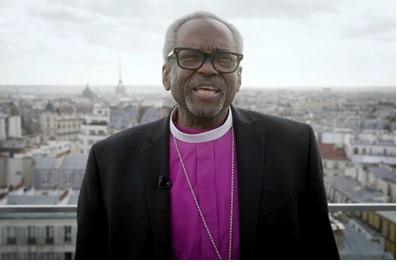
“We are here in a world struggling to find its soul, but the light shines in the darkness, and the darkness has not, cannot, and will not overcome it,” Presiding Bishop Michael Curry said in his video message.
The festive day of Easter is Sunday, April 9.
This is a different Easter message. I’ve shared Easter messages from Jerusalem some years ago, and I have shared Easter and Christmas messages from a variety of locations. Last year for Christmas, we were in San Diego. Today I’m in Paris, part of the Convocation of Episcopal Churches in Europe. We just finished a revival—over 50 young people and some 300-400 people from all over Europe who came for this revival service. It was a remarkable thing to behold and be part of.
The Convocation here in Europe is engaged in incredible ministries, with some joining together with Episcopal Relief & Development to make it possible for resettlement of those who are refugees from war and famine, particularly those who are refugees from Ukraine.
Thinking about it—I realize not only with this view—but with the reality of Easter looming on our horizon, John’s Gospel opens: “In the beginning was the Word, and the Word was with God, and the Word was God.” Then there is a point in which it says, of Christ coming into the world, “The light shines in the darkness and the darkness cannot overcome it.”
On that early Easter morning, John says in his 20th chapter, that early in the morning while it was still dark, Mary Magdalene and some of the other women went to the tomb. They went to the tomb after the crucifixion and burial of Jesus. They went to the tomb of their world having fallen apart. They went to the tomb of all their hopes and dreams having collapsed.
But they got up and they went anyway. They went to perform the rites of burial, to do for a loved one what you would want to do for them. They went, following the liturgies of their religion and their tradition, and, lo and behold, when they went, they discovered that, even in the darkness, the light of God’s love, the light of Jesus Christ—the light of Christ, as we say in the Great Vigil—in fact, was shining in the darkness, and the darkness did not overcome it.
Jesus had been raised from the dead. He was alive, and darkness and evil and selfishness could not stop him. Love—as the old song says—love lifted him up.
We are here in Paris, this wonderful city. While there are protests going on in the city—garbage has not been collected, and it’s all over the city—we are here in Paris, in Europe, with refugees streaming into this continent from all over the world, impacted by changes in weather pattern, impacted by war and famine. We are here in a world struggling to find its soul, but the light shines in the darkness, and the darkness has not, cannot, and will not overcome it. Jesus lives. He has been raised from the dead. That is the message of Easter, and that is the good news of great tidings. From Paris, I’m Michael Curry. God love you. God bless you, and the light shines in the darkness, wherever there is darkness. This little light of mine, I’m going to let it shine. Let it shine, let it shine, let it shine. Amen.
|
RETURN TO TOP
Where the Wild Things Are
This Sunday's Reflection - April 2, 2023
Get it in PDF form with calendar
By Christopher Yoder
Maurice Sendak's classic children's book evokes St. Mark's account of the temptation of Jesus, where Christ makes peace with predators and begins to undo the damage of sin.
And he was there in the wilderness forty days, tempted of Satan;
and was with the wild beasts; and the angels ministered unto him.
— Mark 1:1
In Maurice Sendak’s delightful children’s book Where the Wild Things Are, the boy Max makes mischief and his mother sends him to his room without his supper. And in Max’s roomy imagination a forest grows, and he travels across an ocean “to where the wild things are.”
Read on
|
RETURN TO TOP
The Right Obedience
This Sunday's Reflection - March 26, 2023
Get it in PDF form with calendar

Obedience has always been a trait of civilized societies. There can be no true civilization without the people obeying certain laws and regulations that make human interactions possible in a climate of peaceful coexistence.
Moses gave the Jewish people the Ten Commandments as the premise of the new relationship that through the Covenant they were establishing with their Creator and with one another. These Commandments set up the basic rules for being faithful to their God, and for living in a way that would show that the real God of the World was their ruler.
Even more primitive societies had some kind of intrinsic rules taught to the young so they knew how to behave in that society.
When certain individuals decide to rebel against the established necessary rules, they only create chaos and confusion in the society, and these individuals are normally restrained by the law.
Unfortunately, throughout history some rulers have used the right to establish obedience in the wrong way, exacting from their subjects submissive behaviors that ensure their personal benefit and their stay in power.
This has given rise to justified rebelliousness, which in turn has given rise to the wrong idea that obedience in itself must be rejected,
As a result, rebels have been idolized by society, particularly in the last decades.
The sad truth is that, by refusing the right sort of obedience, so-called rebels are only being obedient to the wrong causes.
The word obey in English is ultimately derived from the Latin oboedire, which means “in the direction of + to hear.” In other words, to obey is to move in the direction of what you hear and act accordingly. If you choose not to hear what is right and good for the rest of society and for yourself, you will only do so by choosing to hear what opposes this good obedience.
Does unjustified disobedience actually give you any real freedom? Not in the least. It is the worst form of slavery possible, because it makes people slaves of sin, and the result of sin is real death—being separated from the living God, the source of true life.
Modern society has grown suspicious of good obedience, especially when it comes to obedience based on biblical authority.
It is true that many a false pastor and prophet has made a wrong use of the Bible to justify their personal interests and gains. May the Almighty have mercy on them!
But overgeneralizations are never good. There are still religious leaders and followers of Christ who truly believe in what they preach and use God’s inspired Word for the good of the people they serve.
But let us see what the Apostle Paul himself said in relation to the topic obedience to God’s will.
In his letter to the Romans, in chapter 6, he addresses the issue of the pretended freedom of those who oppose God’s will in these terms:
“When you were slaves of sin, you were free in regard to righteousness. So what advantage did you then get from the things of which you are now ashamed? The end of those things is death. But now that you have been freed from sin and enslaved to God, the advantage you get is sanctification. The end is eternal life. For the wages of sin is death, but the free gift of God is eternal life in Christ Jesus our Lord.”
It is certainly worthwhile to cling firmly and obediently to this free gift, isn’t it?
Fr. Carlos Expósito, Rector
|
RETURN TO TOP
Imitators of God
This Sunday's Reflection - March 19, 2023
Get it in PDF form with calendar

Does it look like an unattainable goal if someone says that we should imitate God? After all, how can we humans imitate the Almighty, the one we cannot even comprehend with our finite minds?
And yet, this is precisely what as followers of Christ we are called to do.
When the First Book of the Bible tells the story of creation, it states God created us in “his image and likeness”, so the thought of us imitating the Creator is not alien to the Old Testament thinking, and it is certainly a vital part of the New Testament writings.
After all, it is not so much about us trying to make an effort to resemble the one who created us, but simply remembering who we already are—His likeness.
Mental constructs could never grasp the idea of God. If it were possible, then our Creator would simply be a product of our minds, as atheists would have us believe.
Precisely because God is infinite and we are finite, we as part of creation can reflect his image on this plane of existence, but we are not able to comprehend His very essence.
What we do understand, because we can live it out and make it a vital part of our existence, is love. Love is what makes us essentially human, and we can also see it reflected in the rest of the living beings, particularly in the more advanced species of animals.
Love is the highest expression of the principle of affinity, which is expressed throughout the universe even at the atomic level, and which has made the manifestation of the material world possible.
Human love, however imperfect it still is, is the highest manifestation of this principle which pervades all of creation, and points to the Creator Himself.
In the person of Jesus Christ, this human love is shown in its highest manifestation— utter self-sacrifice. In his letter to the Ephesians, chapter 5, the Apostle Paul puts this into words in a touchingly beautiful way. He says, “be imitators of God, as beloved children, and live in love, as Christ loved us and gave Himself up for us, a fragrant offering and sacrifice to God.”
So for Paul imitating God is essentially living in the love that most resembles God’s love, the one that Christ showed for us all, as the true Son of God.
To make clear what this imitation of God’s love consists in, Paul contrasts the behavior that Christ’s true followers must exhibit with the “unfruitful works of darkness”. He encourages the converts at Ephesus to “live as children of light—for the fruit of the light is found in all that is good and true.”
Light has always been the symbol for all that is good and true, as opposed to the darkness. In the Genesis story, light is what God first made manifest in creation, before everything else came into existence, as if to signal that His creation was essentially filled with goodness.
Taking part in the unfruitful works of darkness, which oppose life and goodness, is like being essentially dead. When our lives stop reflecting the pure light and love of our Creator, they make no sense at all.
Unfortunately, to a lesser or greater degree, our lives have departed from the light, and we have all sinned by not showing God’s pure love in our lives.
But as followers of Him who is the light of this world, Jesus Christ our Lord, we have the greatest of hopes because He has shown us the way back to being imitators of our Heavenly Father.
As Paul told the Ephesians, we should all heed the call that says,
“Sleeper, awake!
Rise from the dead,
And Christ will shine on you.”
Fr. Carlos Expósito, Rector
|
RETURN TO TOP
A Good Reason for Boasting
This Sunday's Reflection - March 12, 2023
Get it in PDF form with calendar

Boasting does not look like a good habit. When someone is always boasting about personal traits or achievements, or about possessing big amounts of money or material wealth, it may be irritating indeed!
It is even worse when someone boasts about spiritual achievements or moral stature. That is often accompanied by bigotry and judgmental attitudes which hide themselves behind the guise of making others better if they only rise to the “heights” of the boaster (but the boaster has already secretly decided that they hardly ever attain this goal).
A boaster will always attribute whatever achievement they boast of to their own efforts—or good luck if they are boasting of inherited wealth or winning the lottery.
However, when you feel genuinely joyful and grateful for attaining something that has been freely given to you, out of pure love, and not because you believe you have earned it, then your boasting can be legitimate, and it will surely be appreciated as something positive to be emulated by all.
This is the boasting St. Paul is referring to in his letter to the Romans. In chapter 5, he affirms that because we have been justified by faith, and through Jesus Christ obtained access to His grace, we boast in our hope of sharing the glory of God.
Notice that Paul is making it perfectly clear that what we have obtained is not the result of our own doing, but is the outcome of God’s unconditional love expressed through the self-sacrifice of His beloved Son.
Furthermore—and this may seem paradoxical—Paul states that we also boast in our sufferings.
Why should anyone boast in their sufferings?
It is not a matter of idealizing suffering and making it a goal in our lives. We have not been created for suffering, but for joy. Nobody should strive to suffer. But in Paul’s time many who followed Jesus’ Way—including Paul himself—were suffering because of their convictions and relentless proclamation of Jesus’ Good News of salvation.
Suffering for the best of causes; that is, for sharing in God’s glory, is more than worthwhile. And this suffering, as Paul says, produces endurance, which in turn produces character, and this character produces hope.
Paul is not talking about a vainly invented hope, but about the hope that does not disappoint us, “because God’s love has been poured into our hearts through the Holy Spirit that has been given to us.”
As we journey into the Season of Lent this year, we need to go deeper into the understanding of the real dimension of God’s love for us all. In the chapter of the letter to the Romans we have referred to he gives us a picture of the greatness of Christ’s loving sacrifice for us in the following way:
“For while we were still weak, at the right time Christ died for the ungodly. Indeed, rarely will anyone die for a righteous person—though perhaps for a good person someone might actually dare to die. But God proves his love for us in that while we were still sinners Christ died for us.”
In other words, we are the recipients of undeserved, immeasurable, grace filled love!
This is a good reason for boasting. It is the only good reason for boasting, and the most legitimate one!
Fr. Carlos Expósito, Rector
|
RETURN TO TOP
Faith in God's Loving Grace
This Sunday's Reflection - March 5, 2023
Get it in PDF form with calendar

Rationalism made faith outdated to a great extent. In the eyes of rationalists, faith was perceived as something irrational, based on belief only, with no basis or foundation.
Even so, humanism somehow conceded that it was positive to have “faith in humankind”, but this was mainly as a result of the evidence of what humankind had been able to achieve in the field of science and technology, even if these advances were not always ethically commendable.
Our faith—the Christian faith—is not purely rationalistic. It is based on the premise that our loving God has created all that exists—including us, and that He not only created us but cares for us and all of creation, and is continually calling us back to a harmonic relationship with Him, with one another, and with the whole of creation.
This faith simply cannot be rationalistic, because the God we believe in transcends all human concepts on which reason is founded, However, we do not consider it to be irrational, because we believe our God endowed us with reason so we can make good use of it throughout our proper discernment.
Even so, pure rational logic cannot always lead us to the understanding of God’s plans filled with loving grace.
Think of Abram, who later became known as Abraham—meaning the father of many nations. Was God’s command to him logical? God was telling him to leave the land he was familiar with, the culture he belonged to, the people he called his own, with a promise that God would make of him a great nation, and he would be a blessing for all.
Had Abram used pure logic, he would have rejected this command hands down. How could he at the age of 75 be thinking of having offspring with his elderly wife? But Abram had faith. He somehow knew this to be the truth, since it came from God.
Why would Abram consider that what was being promised to him would be granted to him? Was he deserving it in any way for something outstanding or special he had done? But he was sure it would be granted to him if he only obeyed, and so he did.
This was given to Abram not because he had earned it in any way, but out of loving grace. True faith, based not on pure logic but in a deep conviction that God’s promises will become a reality, is hard for many. Even harder is the acceptance that we will be granted the most wonderful graces out of pure love, simply because He is love.
In chapter 4 of his letter to the Romans, the Apostle Paul deals with the issue of faith as the basis for justification, as opposed to the Law. It is clear that Abraham’s earthly life preceded the Law given to Moses by centuries, so it is clear that what was counted as righteousness for Abraham was not his subjection to the Law, but his faith in God’s plan, so that he did not hesitate in carrying it out.
Paul uses this argument to defend the view that it is not through the flesh that we are all Abraham’s descendants (as the Israelites used to believe and so boasted of being God’s only chosen people) but through the righteousness of faith.
He writes, “For the promise that he would inherit the world did not come to Abraham or to his descendants through the Law but through the righteousness of faith…” “For this reason it depends on faith, in order that the promise may rest on grace and be guaranteed to all his descendants, not only to the adherents to the Law but also to those who share the faith of Abraham.”
So the promise of becoming the true children we were always meant to be, sharing in God’s loving presence, and in true harmonious life with one another and creation, stands firm for all, and the foretaste of what this really means has already been revealed and manifested to us in the life and resurrection of our Lord Jesus Christ.
How irrational does this sound? Can any rationalistic logic defeat this graceful loving faith?
Fr. Carlos Expósito, Rector
|
RETURN TO TOP
God’s Free Gift for All
This Sunday and Beyond - February 26, 2023
Get it in PDF form with calendar

As we start the Season of Lent, many of our thoughts go to our transgressions, and the need to repent, to turn to God, to transform our lives so as to align them better with God’s will.
However, we should never miss the main point of our faith, which has to do with God’s loving grace.
Grace is a gift. It is freely given to all those who willingly take it. It does not depend on our merits or what we deserve, nor can it be bought or negotiated in any possible way. It is simply given out of pure and all-embracing love. But it cannot be forced upon us either.
God’s amazing grace was epitomized in the person of Jesus Christ, His beloved Son.
After giving His people the commandments that would help them order their lives in accordance with His will, after all the calls and warnings to turn to Him through the prophets, after all the wisdom shared with His people through writers inspired by His Holy Spirit, God became incarnate in the person of His beloved Son, Jesus Christ Our Lord, to reveal Himself to us in the most tangible form.
What Jesus revealed in His perfect humanity was God’s divine unconditional love for all. He showed in His person the perfect obedience to God’s will, which is, in turn, the greatest of freedoms, because it casts away all fear, and all bondage to sin.
Jesus’ Way of Love is God’s will for all His creatures. God cannot be defined in human terms because He transcends all human concepts. The only way we can somehow get to know God is through loving Him and showing His love to the others in our own lives. That is why John the Evangelist simply says in his First Letter, “God is Love.”
As we enter into this Lent Season, a season calling us to repentance, to become a better version of what we already are essentially--true children of our loving God--we should always keep in mind that God has loved us first, with His infinite and all-inclusive love, whose most tangible expression is Jesus Christ Himself.
God’s immense love and grace is hard for us humans to understand because we have been made to believe that love needs to be earned and deserved (except for the love that good parents feel for their children). We have also been made to believe that for someone to be loved or appreciated more, someone else has to be loved less. So we spend our lives trying to fit into others’ expectations about us, competing with others to gain people’s acceptance.
But real love, the one that God showed us through His beloved Son, goes against all human logic. In our logic, when something is given out it diminishes as it is divided into more and more people. So the more people receive something, the less each one receives.
But it is just the opposite with God’s loving grace. It multiplies and grows as it is given out to all who willingly accept it. And so it happens when we imitate Our Lord in giving out love to the rest of the world.
In his Letter to the Romans, chapter 5, which is quite a complex comment about sin, death, the Law, and God’s grace, the Apostle Paul says, “for the judgment following one trespass brought condemnation, but the free gift following many trespasses brings justification.”
Apart from the fact that following Paul’s thoughts here is quite a challenge, the main point he is making is that God’s free gift (His Grace) greatly supersedes all the condemnation that sin can entail.
Let us joyfully embrace this free gift in our lives, and make it known to the rest through our loving words and deeds, so that all can embrace it and have their lives transformed into their real identity in God.
Fr. Carlos Expósito, Rector
|
RETURN TO TOP
Pressing on towards God's Heavenly Call in Christ Jesus
This Sunday and Beyond - February 19, 2023
Get it in PDF form with calendar
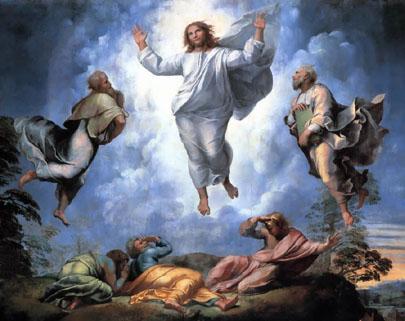
This Sunday, the last Sunday after the Epiphany, is known as Transfiguration Sunday because the Gospel reading is always about Jesus’ Transfiguration on the Mount and is also known in the Episcopal Church as World Mission Sunday.
The Transfiguration narrative in the three synoptic gospels (Matthew, Mark, and Luke) is quite similar, with few differing details. It is a truly impressive transcendent and mystical event which has inspired several artists to depict it in paintings, and a good number of theologians to write about it.
The theme is really spiritually profound and calls for the analysis of allegories and symbols, such as the mountain, the dazzling pure white light, the presence of Moses and Elijah, the cloud, and the voice heard in the cloud. All of these have their Old Testament antecedents and the New Testament readers were certainly familiar with them.
But what can be the relation between Jesus’ Transfiguration on the Mount and the World Mission of the Church?
Transfiguration in the original language it was written (Koine Greek) is metamorphosis, which means a total transformation, giving rise to a new kind of being with new and improved features, as in the case of the caterpillar becoming a butterfly.
The Transfiguration event is mainly described as a vision, rather than as something permanent. It is a glimpse of the glorious divine image, full of splendor and pure light, of inexpressible beauty and fullness, that God’s children are meant to be.
More than Jesus’ own transfiguration—which is ultimately enacted by God Himself—the purpose of the vision is to enable these three disciples to perceive the true being of the one they had been following, as one who recapitulates both the Law and the Prophets (represented by the presence of Moses and Elijah) and embodies God’s true glorious image in Himself.
More than that, it was a glimpse of the ineffable goodness of God’s presence with His human creatures—a goodness that makes Peter exclaim, “it is good for us to be here” and also want to remain in this presence for eternity.
But the clue to the whole purpose of the event is given in the words heard in the cloud, “This is my beloved Son in who I am well pleased; listen to Him.”
The voice is addressed to the three disciples. It is a mandate to keep on doing what they had done so far and persevere to the end. The Transfiguration event precedes Jesus’ passion by a few days. These will be days when the disciples’ faith and loyalty will be put to the test to the greatest extent.
To listen is not merely to hear, but to hear and heed what is said. Jesus will give His followers final instructions that they prefer not to hear. They would rather not hear about the horrible suffering and death of their beloved master, but Jesus knows this is coming and must be faced. He knows that the transformation mission that He started needs to go on, even when He returns to the Father after His resurrection and ascension.
The disciples went through moments of despair and doubt for sure. But the glimpse of Jesus’ true nature they witnessed, and the understanding that by following Him they would also be likewise transformed into God’s true image, must have been a good source of support during this great ordeal and beyond, even to the end of their days on earth.
St. Paul the Apostle was not part of the original group of twelve, and certainly did not witness Jesus’ Transfiguration, but he had a totally transforming encounter with Him when he was persecuting His followers.
In his letter to the Philippians, referring to attaining total transformation by becoming like Christ in the sharing of His suffering and death and partaking in the power of His resurrection, he stated, “I do not consider I have made it my own; but this one thing I do: forgetting what lies behind and straining forward to what lies ahead, I press on toward the goal to the prize of the heavenly call of God in Jesus Christ.”
The Mission of the Church Universal has been and will always be to enable the greatest possible number of people in the world to be transformed into their true identity in God. This is God’s saving plan for all, made possible through Jesus Christ’s self-giving love, and through all those who have followed and will follow after Him.
In a world full of so much injustice, indifference, greed, hatred, disharmony, diseases, and lack of love, it would seem that there is no hope for this transfiguration to take place. But the Christian faith is precisely this transforming hope in the midst of all hopelessness, carried out by ordinary humans like you and me, who are convinced that beyond all this seeming ugliness and despair lies the dazzling beautiful and pure image of our true being in harmonious unity with God, with one another and with the whole of creation.
Fr. Carlos Expósito, Rector
|
RETURN TO TOP
Mature In Christ
This Sunday and Beyond - February 12, 2023
Get it in PDF form with calendar
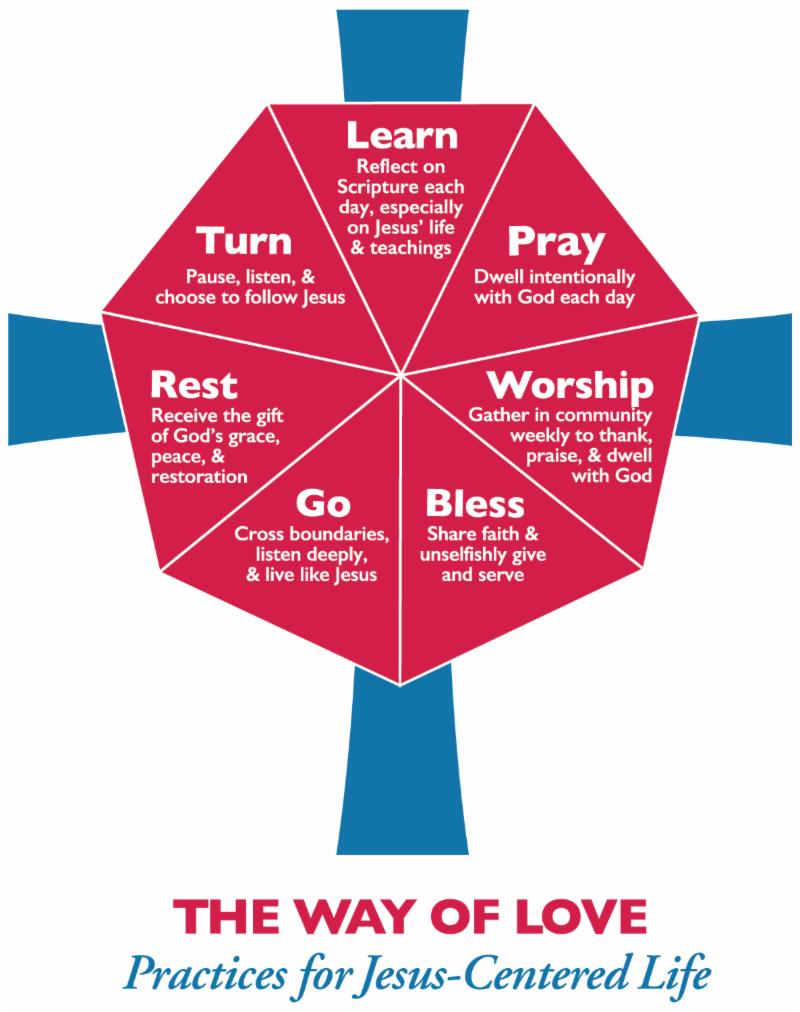
Discipleship for followers of Christ involves a lifetime of learning and maturing in our faith, in Jesus’ radical Way of Love, which is the perfect reflection of God’s all-embracing love for all His creatures.
From the moment a person embraces this faith, a new path opens up for this person to grow and mature, to become more Christ-like, and to be the pure image of the Creator that they have always been meant to be.
Regaining our true identity as God’s children can only be achieved in a gradual and persevering process, and each person travels this path in their own unique way.
One thing is certain though, we cannot achieve this goal by our own efforts only. We need God’s help and grace, which He is willing to give to us, if our desire for Him is genuine.
This process requires that we become obedient to God, that we follow what God commands, and do His will through our words and actions, which stem from our thoughts.
Obedience is one of those qualities which has lately been disregarded as something positive for humans in the last decades. It has been equated to subserviency, which is a great mistake.
One should certainly not be obedient to those who demand something from us for their own sake. Tyrants demand obedience from those under their governance, but their only concern is how to get the most out of those they govern.
When parents ask their children to obey them, in most cases they do so out of love, because they know their children are still not capable of making mature and sensible decisions for themselves, and want to protect them as much as they can.
Our heavenly Father, likewise, guides us through commandments that help us to avoid unnecessary suffering and mistakes in our relationships with Him and with one another. This is why commandments were given to the people through leaders like Moses.
But our God also wants and needs us to mature. When parents see their children grow in physical stature and strength, they also want them to grow morally and spiritually. They have already instilled in them valuable principles that will guide them throughout their lives, and let them make their own choices based on them. This is how a person matures and becomes independent.
In the same way, our Father in heaven loves to see His children mature in spirituality. As Jesus Christ Himself taught, all the commandments can be summarized in the Law of Love, because when we are guided by true unconditional love, which is the perfect expression of God’s love, nothing can go wrong.
In the Book of Ecclesiasticus, 15: 11-20, the writer clearly expresses the idea of how it would be totally absurd to blame our Creator for our wrong choices. Having been created free in His infinite love, we are free to choose to follow God’s loving commands or not, but it will be up to us to face the consequences.
As the writer of Ecclesiasticus puts it, “He has placed before you fire and water; stretch out your hand for whichever you choose. Before each person are life and death, and whichever one chooses will be given.”
Referring to the immaturity shown by the converts in Corinth when they claim to belong to one Apostle or another, instead of acknowledging their belonging to Christ only, the Apostle Paul says in 1 Corinthians 3, “Brothers and sisters, I could not speak to you as spiritual people, but rather as people of the flesh, as infants in Christ. I fed you with milk, not solid food, for you were not ready for solid food.”
So let us pray that, through His infinite grace and help, God’s Holy Spirit enables us to grow and mature in our faith, each passing day, so that we may eventually reach Christ’s stature, and partake of His graceful love in our thinking, which will show forth in our words and deeds.
The more we mature in Christ, the closer heaven is brought to earth for all.
Fr. Carlos Expósito, Rector
|
RETURN TO TOP
Presenting Ourselves to God
This Sunday and Beyond - February 05, 2023
Get it in PDF form with calendar

This Thursday (February 2nd) the Church celebrates the Feast of the Presentation of Our Lord, also known as Candlemas.
Within the Season after Epiphany, which stresses the manifestation or revelation of our Lord to the world as the Christ, the Messiah, the Anointed One of God, Candlemass is a specially fitting feast to celebrate, since it brings out the baby Jesus being presented at the temple as the “light for the Gentiles and Glory to your people Israel” as Simeon proclaimed Him to be.
The presentation of the male infants forty days after their birth to God in the temple, together with the rite of purification for the mother, was the ritual custom of the time, so what Joseph and Mary did was just what was required of them by the Law.
They probably just expected to go about the required ritual, present the offerings, and then simply return to Nazareth.
But they were met by two characters that changed the expected course of events.
First, Simeon, a righteous and devout old man who had been promised by the Holy Spirit that he would not see death before being granted the wonderful grace of meeting the Messiah personally. At that point he is granted this grace.
Here is what St. Luke the Evangelist tells us that Simeon told Mary, “Behold, this child is set for the fall and rising of many in Israel, and for a sign that is spoken against (and a sword will pierce through your own heart also), that thoughts out of many hearts will be revealed.”
What Simeon perceived in the child that he held in his arms was a revelation, not only of the fulfillment of the Messianic promise, but of how He would be a channel of the revelation of the true character of many who would come in contact with Him, both those who would follow His Way of Love, and those who would oppose Him.
So Simeon was predicting that Jesus would make possible that many would be authentically present to the moment of their encounter with Him, and would have to make the choice of embracing God’s Way of Love or rejecting it.
Simeon was truly present to the moment he was offered by God and embraced it with all his being. He also embraced the fact that his earthly years were almost over and did it with the joy of having been granted the tangible vision of God’s salvation for his people. His words are well known because through the centuries they have been put together in a canticle known as the Nunc Dimittis, which is the Latin for Now you let depart.
The other character Joseph and Mary encountered was the prophetess Anna, whom St. Luke refers to as “a widow who did not depart from the temple, worshiping with fasting and prayer night and day.”
Anna gave thanks to God for the grace of seeing the Christ, and “spoke of him to all who were looking for the redemption of Jerusalem.”
Anna was present to God all the time, and God granted her the great grace of meeting God’s Savior personally. Then she continued to be present. She would now be present to the people, to all those who were willing to hear the wonderful news of their redemption that she had witnessed firsthand.
Some commentators have said that the Feast of the Presentation is also about Simeon and Anna being present to God and to His Christ.
Simeon’s words to Mary also remind us that it is also about us being genuinely present, even if the presence pierces our souls like a sword in suffering, or if it brings out our painful contradictions and brokenness. Hiding from the confrontations that God and His Christ bring to our lives will do us no good.
It is so delusional to think that because we live in the era of globalization, we are more present than ever to reality. Global reality is accessible through the social media, but at the same time there are innumerable ways of manipulating it, and so many unreal and confusing stories available on the web that it is easy to be alienated from reality all the time.
Our modern society does not encourage one-to-one contacts anymore. People are made to believe that it is normal to live apart from everyone else that are not part of their close circle of family and friends, and that the rest of the interactions can be virtual.
So being genuinely present to our Creator, which inevitably implies being present to our neighbors, and to the rest of creation becomes more fiction than reality each passing day.
Being truly present means getting to know the others as they really are (not as they may appear on a Facebook page), their needs and plights, their struggles, their feelings, and how our presence with them can make a change for the better in their lives.
All through His ministry on this planet, this is what Jesus did and taught His followers to do. Will we heed His call?
Fr. Carlos Expósito, Rector
|
RETURN TO TOP
Walk Humbly with Your God
This Sunday and Beyond - January 29, 2023
Get it in PDF form with calendar

True humility is one of the greatest virtues any human being can possess. It is not commonly found, and it can be misrepresented and misunderstood, confusing it with lack of self-esteem, false modesty, or being subservient to those in higher social positions, expecting to be favored by them.
True humility recognizes our intrinsic values as God’s beloved children, in our uniqueness, and with boundless possibilities open to us when we follow in God’s Way of Love.
Being created in God’s image and likeness, we human beings have a considerable creative potential, which can work wonders when put to the right causes. We only have to look at the tremendous achievements of civilization throughout the centuries to realize this truth.
Unfortunately, this same creative capacity, when put at the service of greed, selfishness, and false pride can also generate war, mass destruction weapons, and unjust systems of oppression.
False pride is the most dangerous of feelings. It can be confused with self-esteem or the recognition of one’s true values. But it is nothing of the sort. It is the very essence of all evils, and the root of what has caused humanity to stop walking humbly with God, with one another, and with the whole of creation.
False pride is what makes us think that we are superior to others, deserving more than others, even deserving to have the same power as a god, and to use others and creation as stepping stones to achieve our self-centered goals.
This false pride can be nurtured by economic or academic achievements, or both, or by a certain social standing, entailing the right to rule over others.
The worst form of this pride, and one that can even be confused with virtue, is spiritual pride, which leads us to believe that we are spiritually superior, due to our “righteousness”, and that we can condemn others who are not as “spiritual” as we are.
As we enter this new year, we can still recall the Christmas story with its great lesson in humility, starting with Joseph and Mary humbly accepting God’s plan despite the great disruptiveness it brought to their lives; then God’s beloved son being born in the humblest of ways, and becoming manifest to the humblest of people, according to Luke’s narrative.
Matthew’s narrative, in turn, brings us the Epiphany, the humble worship of wise men coming from other lands and another religious background, but whom the Holy Spirit inspired to acknowledge God’s beloved Son in a humble baby living in Bethlehem.
Then we had the story of Jesus humbly coming to John to be baptized by him at the Jordan, and His divine filiation being revealed at that very moment.
At the same time, in this time-space continuum where our mortal lives develop, in this State of California at the start of 2023, wanton mass shootings have taken place, fueled by hatred and rage, which are mainly the result of false pride, of believing that we have the right to do away with the most sacred of God’s works: the human life.
If only we understood, not only with our minds, but above all in the depth of our hearts, how useless and destructive false pride is, maybe we could heed what the Prophet Micah said, “God has told you, O mortal, what is good; and what does the Lord require of you but to do justice, and to love kindness, and to walk humbly with your God?”
And referring to Christ crucified, which he defines as “a stumbling block to Jews and foolishness to Gentiles, but to those who are the called, both Jews and Greeks, Christ the power of God and the wisdom of God”, Paul in 1 Corinthians 1, 18-31, concludes by affirming, “Let the one who boasts, boast in the Lord.”
Boasting in the Lord’s Way is the only acceptable way of not being humble. Even so, if one truly follows the Lord’s Way, there will be no boasting at all.
Fr. Carlos Expósito, Rector
|
RETURN TO TOP
Diversity Is Not Division
This Sunday and Beyond - January 22, 2023
Get it in PDF form with calendar

Diversity has become a fashionable term in the last decades, especially in democratic societies like ours, and it has always been a foundational principle of this nation, expressed in the Latin motto “e pluribus unum”, meaning “out of many, one”.
The faith we profess is based on the One and Only God in three Persons, which also reminds us of diversity in unity, but at the same time we are constantly reminded that it is One and the Same Spirit that bestows all the diverse gifts on the believers, and that Christ is One and the Same yesterday, today, and always.
As Paul himself points out in his letters, particularly in 1 Corinthians 12, there is a vital need for the diverse gifts that the Spirit gives to different members of Christ’s church, because only through this wonderful diversity can the different ministries be carried out efficiently for the proper growth and development of Christ’s body on earth.
To make this idea clearer, Paul uses the image of the human body with its different parts, and how all these parts work together in harmony to make it up and enable it to function properly. He somewhat hilariously points out how inadequate and absurd it would be if the whole body were made up of only one part.
In the same way, we as church members need to understand the blessing of diversity, and how vital it is to have people with varied gifts, vocations, and talents, so that the different tasks can be carried out harmoniously and efficiently for God’s glory and the good of His people.
But diversity and disunity should never be confused. Diversity leads to an abundance of ministries and blessings. Disunity and division lead to the weakening, and eventually the death of a congregation.
To keep our unity, we must first and foremost clearly understand who our Great Shepherd is, and who we must turn our eyes to and keep our eyes fixed on, at all times: Jesus Christ our Lord. If we forget that, we are prone to fall into the traps of disunity.
For a good reason the name of the evil one (Satan) literally means “the adversary”, “one who is opposed”. His main strategy is always to divide us from God and from one another, to split us apart so that harmony ceases and chaos ensues.
Disunity has subtle ways of creeping into congregations. The evil one is sly indeed and does not often present division as a clear goal, but as a way of defending a certain position or idea, which may look good indeed, even from the Christian standpoint.
One of the ways in which disunity is created is through the exclusive following of certain leaders, who seem to us as the ones who are doing things in the right way, or whose personalities are more in sync with ours.
One of the reasons why it is healthy for a congregation to change priests after a certain number of years is precisely that. It teaches them to look at things from different perspectives from time to time, and it also teaches them who the real shepherd of the flock has always been, is, and will be: Christ Our Lord.
Priests come and go, but the church remains, because it is Christ’s church, not this or that leader’s church.
The danger of division has been with the Church since its earliest times. In 1 Corinthians 1 Paul addresses this problem in the recently founded church at Corinth.
Starting at verse 10 he addresses the Corinthian converts with these words: “I appeal to you, brothers and sisters, by the name of our Lord Jesus Christ, that all of you be in agreement and there be no divisions among you, but that you be united in the same mind and the same purpose…” And then he uses some good irony when he says, “What I mean is that each of you says, ‘I belong to Paul’, or “I belong to Apollos’, or ‘I belong to Cephas’, or ‘I belong to Christ.’ Has Christ been divided? Was Paul crucified for you? Or were you baptized in the name of Paul?”
Diversity is great, but divisiveness can totally destroy a congregation, and even worse, become an obstacle for the spreading of Christ’s News of Salvation.
If those who have not received the Good News see that we, who present ourselves as the proclaimers of this News, are divided among ourselves, will they even consider listening to us? Think.
Fr. Carlos Expósito, Rector
|
RETURN TO TOP
Illumined by the Light to Be Light
This Sunday and Beyond - January 15, 2023
Get it in PDF form with calendar
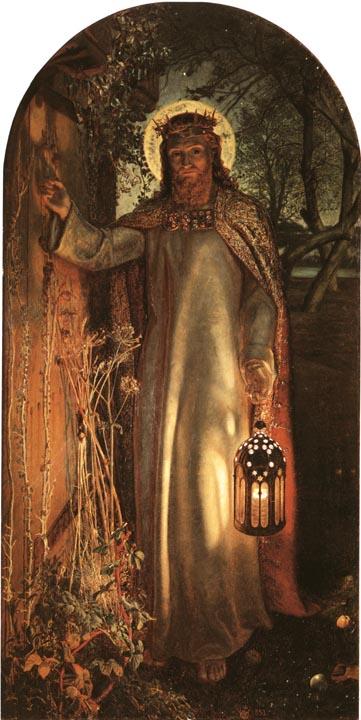
On the Second Sunday after Epiphany, the Collect asks God to grant that His people (and this includes those of us who claim to be Jesus’ followers), illumined by Christ’s Word and Sacraments, may shine with the radiance of His glory, that He may be known, worshipped, and obeyed to the ends of the earth.
In other words, the Collect reminds us that He who is the light of the world, and whose manifestation we are reminded of during the Epiphany season, is pure and shining light, glowing with His Father’s glory, which is also His, and that we are called to let His radiant light shine through us to dispel the darkness in this world.
Christ’s Word and Sacraments, of which the Church universal is the custodian and dispenser, are the main means of grace through which this light illumines the lives of those who open their hearts and minds to Jesus’ Way of Love, and let Him be the ruler of their lives.
Unlike the blinding lights that are used to focus attention on stage stars, Christ’s light is not meant for us to shine so as to be filled with worldly fame and vainglory, but to share Christ’s light with others, so that the light multiplies and expands infinitely, until all the darkness that the forces of evil bring about in the world are dispelled, and Christ’s light becomes all in all.
As the prophet Isaiah says, speaking in God’s name and referring to God’s anointed One, “I will give you as a light to the nations, that my salvation may reach to the ends of the earth.”
How can we, as God’s faithful people, contribute to make salvation reach the ends of the earth?
The Apostle Paul, in his First Letter to the Corinthians, gives us clear hints as to how this can be made possible.
He gives thanks to God for this community of followers of Jesus’ Way in Corinth “because of the grace of God that has been given you in Christ Jesus.”
Then he proceeds to explain how this grace has been made manifest in this community: “for in every way you have been enriched in Him, in speech and knowledge of every kind—just as the testimony of Christ has been strengthened among you.”
So it becomes clear that the spread of the Good News of salvation to others—what we call evangelization—depends, first and foremost, on Christ’s grace, and on His grace only, and that the grace that has been bestowed upon us is then enriched by abiding in His love and strengthening our mutual ties in the community.
It is then our duty to grow in our faith by getting to know God’s Word and His teachings, by being nourished through His Sacraments, so that both our words and our lives can reflect His light ever more closely, and our testimony can bring others to the true light as well.
No one can make Christ’s light shine for others if they do not carry this light in themselves. We have been called to be Christ’s light so that others can find their way and become His light for others in turn.
Fr. Carlos Expósito, Rector
|
RETURN TO TOP
Rebirth for All
This Sunday and Beyond - January 08, 2023
Get it in PDF form with calendar
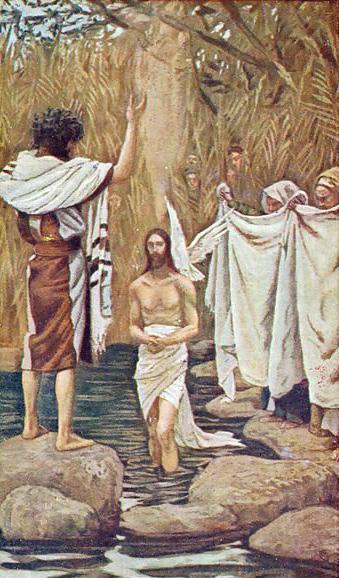
This Sunday—the first Sunday after Epiphany—the Church universal celebrates the Baptism of our Lord at the Jordan by John the Baptist.
The event is told by the four evangelists in slightly different terms, which clearly shows how relevant this was for the early Christian communities.
A lot has been written and commented about this event from a theological perspective, since it sounds contradictory that a baptism of repentance was taken by Him who was sinless. It is precisely Matthew’s Gospel which makes this contradiction explicit in the words of John the Baptist trying to oppose Jesus’ intention: “I need to be baptized by you and you come to me?”
But John the Baptist consents when Jesus replies, “let it be so now; for it is proper for us in this way to fulfill all righteousness.
As to the right interpretation of these words, quite a lot has also been discussed and written by theologians and Bible commentators, the most common interpretation being that Jesus showed great humbleness in making Himself equal to sinful mankind to open the way for us all to the status of God’s true children.
The other really relevant point in the different narratives of Jesus’ Baptism has to do with His true nature, which is expressed both in visual and auditory images. Most narratives tell us that the heavens were opened for Him when He came out of the water, and the Holy Spirit lighted on Him in the form of a dove.
This can be interpreted as sudden illumination, a revelation of His divine filiation with the Father as His true nature. To corroborate this divine filiation, a voice is heard from heaven saying, “this is my Son, the Beloved, with Whom I am well pleased.”
It is logical to believe that God’s pleasure in Jesus has to do with the fulfillment of His mission on earth. After all, there is no linear time for God, and He certainly knows the future as well as the present and the past.
The fact is that this statement is heard from God before Jesus has started His intensive three-year ministry, so we can also interpret that Jesus needed to be reassured by His Father of His true nature, of His caring love for Him, before starting His extremely challenging mission that would lead Him to the agony of the cross.
Henri Nouwen, the well-known writer of books on spirituality, in Life of the Beloved interprets these words said to Jesus as the words that our heavenly Father says to each and every one of us during our baptisms, and throughout our lives.
It may sound a little presumptuous at first, but if we consider the fact that Jesus’ plan for us is precisely to enable us all to become partakers of His kingdom of Love, becoming true children of God, this makes a lot of sense.
Peter was a strict follower of the Jewish Law when it came to conversion to Jesus’ Way of Love, so for him only those who embraced Judaism fully could be partakers of God’s salvation through Jesus Christ. But God had a surprise for him. Through a vision God led him to Cornelius, a Roman believer in Jesus’ Way, and then Peter came to clearly understand “that God shows no partiality, but in every nation anyone who fears Him and does what is right is acceptable to Him.”
So even Peter, who at first contended with Paul for his inclusion of the Gentiles in Jesus’ Way of Love, finally understood that Jesus has opened the way to rebirth for all, with no exclusion, so that every human being who makes Jesus’ Way of Love their own is, undoubtedly “God’s beloved child, in whom He is well pleased.”
Fr. Carlos Expósito, Rector
|
RETURN TO TOP
The Name above Every Name
This Sunday and Beyond - January 01, 2023
Get it in PDF form with calendar
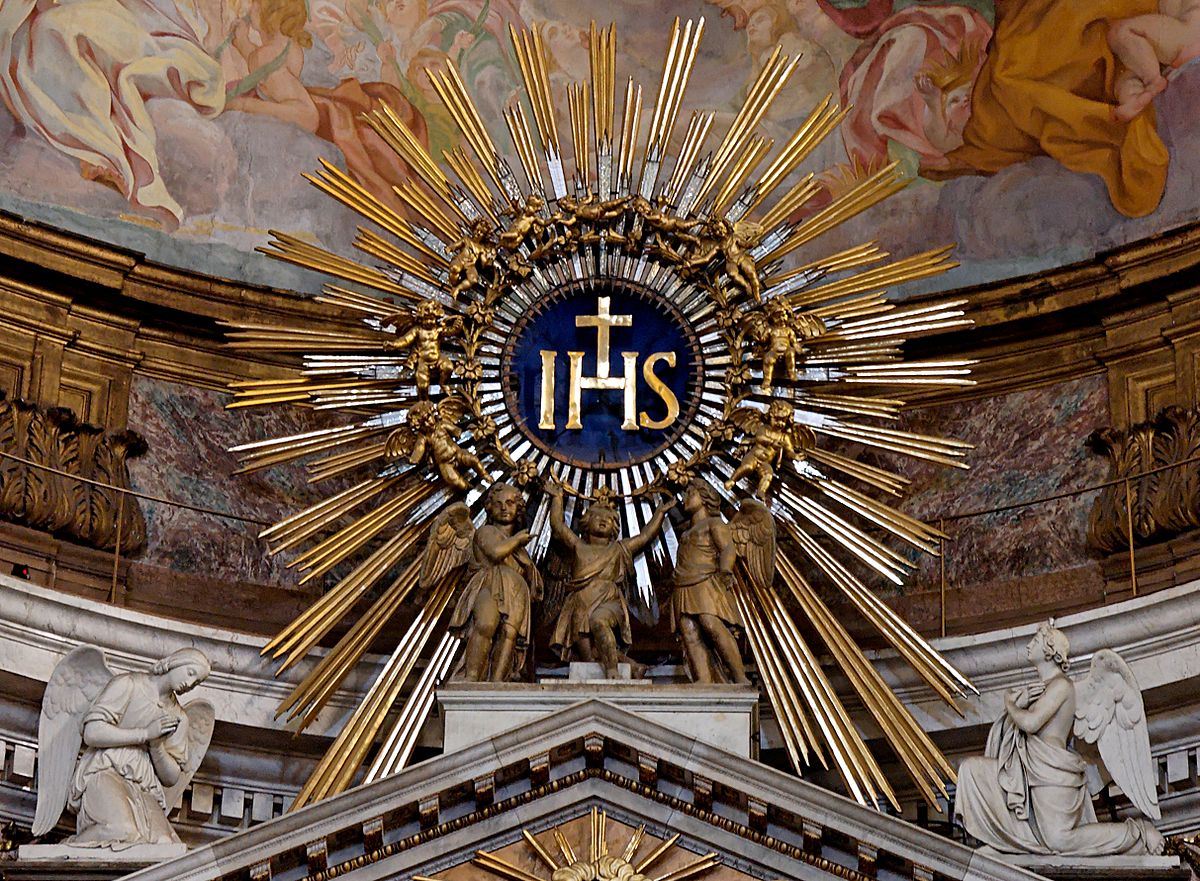
Coming from a country where Spanish is spoken (Cuba) it has always called my attention that in English-speaking countries it is not the custom to name anyone Jesus, while in Spanish-speaking countries Jesús is an extremely common name.
It seems that the rationale behind not naming anyone Jesus in English-speaking countries has to do with the recognition that this name is the holiest of names, and no one is deserving of it. This comes from the Christian tradition, of course, but even nowadays it has been perpetuated by custom.
The fact is that in Jesus’ time this was a common name. It was actually the same name of the sixth book of the Bible (Joshua), which means God saves. To be sure, our Savior shared his name with many other people in the region, though perhaps not with so many in Nazareth, which was a rather small town, and for this reason he became popularly known as Jesus of Nazareth.
Names for the Jewish people were not just a way of identifying persons and distinguishing them from others. They were supposed to define the person, to specify the character and even the mission of that person in life. We can see examples of this throughout the Bible, when God even changed a person’s name for the new mission that person was to accomplish: Abram to Abraham, Jacob to Israel.
Though traditionally names were repeated within families, to signify that the persons in that family had similar traits and missions in life, there were times when the tradition was broken, mainly when it was God’s given mission for that person. Everyone was surprised in Zechariah’s family when Elizabeth and Zechariah insisted on naming the child John (graced by God), because that was not a name that ran in that family. But this name had been given to the child by God Himself through an angel that appeared to Zechariah before Elizabeth got pregnant.
Our Savior also got His name before He was born, when the angel appeared to Mary before she had conceived from the Holy Spirit and announced to her what her mission and this child’s mission would be. The angel reiterated this name to Joseph when he appeared to him in a dream and assured him that he should marry his betrothed one because what was conceived in her was from the Holy Spirit.
The name given to our Savior clearly showed His main mission—to save us all from the slavery of sin and death—but it is obvious that in His time this name was not exclusive to His person.
In his letter to the Philippians, the Apostle Paul, in chapter 2, refers to Jesus’ name in different terms. He says that God gave Him “the name that is above every name, that at the name of Jesus every knee should bow, in heaven and on earth and under the earth, and every tongue confess that Jesus Christ is Lord, to the glory of God the Father.”
It is evident that Paul is not referring to the mere meaning of the name—God saves—but is using the word name with a deeper meaning, pointing to the very essence and being of Jesus as God’s beloved Son.
And in pointing to this essence, Paul is exhorting Jesus’ followers to imitate Jesus’ attitude. The passage we have as the second reading for this Sunday (Philippians 2: 9-13) begins with the word therefore, so in order to fully understand why the writer states that God exalted Jesus to the highest place and gave Him the name that is above every name it is essential to read what comes before.
Here, Paul writes this about Jesus’ attitude:
“Who, being in very nature God, did not consider equality with God something to be grasped, but made Himself nothing, taking the very nature of a servant, being made in human likeness. And being found in appearance as a man, he humbled Himself and became obedient to death—even death on a cross!
This is the essence of Incarnation, what we celebrate at Christmas time. In theological terms it is known by a Greek term—kenosis—which means self-emptying. In other words, it means that God poured Himself out in love for us in the person of Jesus Christ.
Apart from all other linguistic considerations, this is the real reason why Jesus’ name is the holiest of names, and why, according to Paul in this same text, we need to “continue to work out our own salvation with fear and trembling, for it is God who is at work in us, enabling us both to will and to work for His good pleasure.
Fr. Carlos Expósito, Rector
|
RETURN TO TOP
The Grace of God for All
This Sunday and Beyond - December 25, 2022
Get it in PDF form with calendar
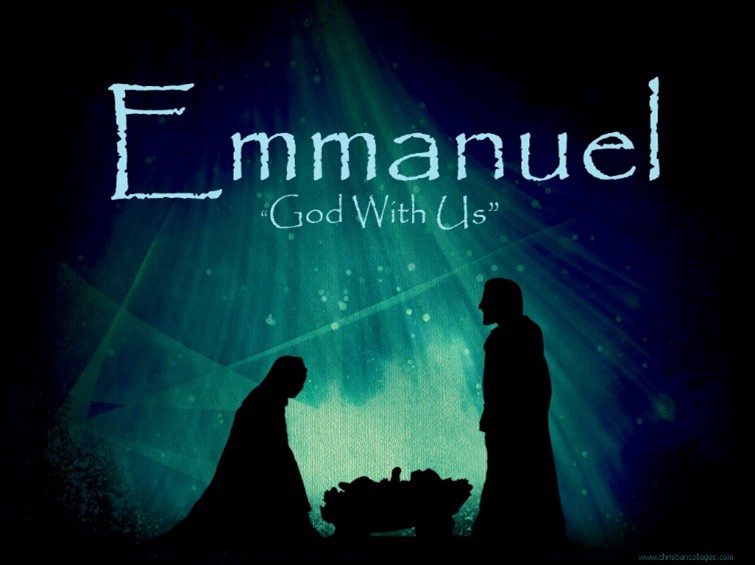
Christmas is coming, and although the media and the decorations and articles for sale in all stores try to push us to believe that it has been Christmas right after Thanksgiving Day, the fact is that the Christmas season consists of twelve days, from December 25 to January 5.
There is nothing wrong, many would argue, with entering the Christmas spirit beforehand, especially when the world has gone through so much suffering during the last two years, and it seems that this year we are able to celebrate without so many restrictions at last!
Granted. There is nothing wrong with a certain anticipation of the Christmas celebrations. After all it has always been the case to prepare for Christmas by decorating, by putting up a Christmas tree, by preparing for the main celebrations. And Advent is the season that puts us into the mood of entering into the joy of Christmas by preparing ourselves properly.
It is well known by all that Christmas is essentially a Christian celebration, and some people even enjoy the beauty of the Christmas carols and songs, that tell the story of Jesus’ birth and our salvation through Him, even when they are not even religious people.
But unfortunately for many Christmas has become just one season of partying and exchanging presents, of showing off with the most expensive decoration in the neighborhood, of dazzling our relatives and friends with the finest of all celebrations, and sometimes attending the local church, especially when our children or grandchildren are performing, to show them our support.
It is urgent that we Christians rescue the true Christmas for all!
While I was still in Cuba, and for several decades the government decided that the Christmas celebrations had no place at all in an atheist country, I remember one Episcopal priest once say from the pulpit that he was glad it was so, because then those who celebrated Christmas really celebrated it with its true sense, even if there were no presents to exchange, or no Christmas trees to buy.
I was not so sure that this priest was right at that moment. I really regretted that Christmas Day was not even a holiday in the calendar in Cuba, and unless it fell on a Sunday we had to go to work during the day and have our celebration at church in the evening.
Nowadays I see a lot of truth in what this priest said then. Of course I am not in favor of abolishing the Christmas celebrations from our calendars, but I do think that going back to the true sense of Christmas is a must.
So what is the real sense of the Christmas celebration?
It may seem obvious. Anyone—even someone who is not Christian—will readily tell you that we celebrate the birth of Jesus Christ, and they will probably add, “although we know that Jesus was not really born on December 25.”
But there is a much deeper sense in the Christmas story. It is a story about incarnation, about God with us, God made man by the power of the Holy Spirit through a virgin. God that came down to us to in human form to show us what His love is like, by His infinite grace, and not by any merits of ours.
By becoming perfectly human, in the humblest of ways, God has revealed to us how infinitely great His saving grace is. In Jesus Christ God revealed Himself as the One who loves us unconditionally, and gives Himself for us in sacrifice, so that we may live abundant, everlasting, and real lives in His love.
In his letter to Titus, the Apostle Paul expresses this truth eloquently in these words, “For the grace of God has appeared, bringing salvation to all, training us to renounce impiety and worldly passions and in the present age to live lives that are self-controlled, upright, and godly, while we wait for the blessed hope and the manifestation of the glory of our great God and Savior, Jesus Christ.”
So this is the true message of Christmas, the one we need to rescue for all. It is the most joyful of messages because God has made Himself known to us, and has come to live with us that our lives may be transformed back into the image and likeness of what we have always been meant to be—the resemblance of our loving God—and be partakers of the wonderful glory of His son, Jesus Christ our Lord.
Fr. Carlos Expósito, Rector
|
RETURN TO TOP
What Good News?
This Sunday and Beyond - December 18, 2022
Get it in PDF form with calendar

Christians, and probably a good number of non-Christians who are familiar with Christian terms, have heard a lot about the Good News of salvation that we Christians proclaim. Many are also quite familiar with the fact that Good News is the equivalent of the term Gospel in English, although this latter word is also understood by plenty of people to refer to a particular musical genre.
When the Advent season is well on its way, practically coming to its end, proclamation of the Good News becomes a must in every church and every Christian circle. People are willing and more than eager to hear good news, especially in times when almost 99% of what you hear, read, and see in the media is terrible news.
There is even a modern trend to exacerbate the morbid side of news and to make catastrophic predictions about the near and far future of humankind. And media owners are happy to provide us with this kind of information regardless of its objectivity.
So we come to the question at the title of this article: What Good News are we proclaiming amid all this chaos?
We may think that the times we are living are the worst in the history of humankind. Opinions may vary in this respect, and probably everyone has said the same about the times they lived in. The fact is that the world has been chaotic for centuries now, and the situation did not look particularly promising to the people living in Jesus’ time or a few years after his life time on Earth.
Paul’s times were particularly convoluted. The Roman Empire was conquering and keeping more and more territories under its dominions, but there were revolts and unrest everywhere. People lacked freedom and were subject to unjust taxation, which made life miserable for a great part of the population.
The new converts came from different religious and social backgrounds, but they all had the most important thing in common: they had been born anew in Christ, and the way they related to one another, and to the rest of society and creation was based on the practice of Jesus’ Way of Love.
These converts had made radical changes from the way they lived before, when their lives were stuck in self-centeredness: the poorer keeping the little they had to themselves to survive, and the richer selfishly clinging to their wealth. They had now learned the true meaning of abundant life—a life based on sharing, on giving to the other, on letting God’s abundant life in love flow like an unstoppable flood.
This change was not an easy one. In some cases it might have taken place more promptly and smoothly than in others. Many might have still clung in part to the old ways, and were struggling to adopt Jesus’s Way in their new lives,
As it happened then, it still happens nowadays, and we must be constantly reminded and urged to leave the old selfish ways behind and embrace Christ’s radical Way of Love.
No matter how hard we may struggle, this has been, is, and will always be the greatest of news in all times. Paraphrasing the Apostle Paul in his letter to the Romans, we can proclaim “the Good News concerning God’s Son, who was descended from David according to the flesh and was declared to be Son of God with power according to the spirit of holiness by resurrection from the dead, Jesus Christ our Lord, through whom we have received grace and been sent to bring about the obedience of faith among all the peoples of the world for the sake of His name, including ourselves who are called to belong to Jesus Christ.”
Belonging to Him whose immeasurable love created us is the greatest of news always. When in our stubborn self-centeredness we forgot the joy of true living, and were enslaved to the stagnation of lack of love and indifference, He even gave Himself to us in sacrifice to bring us back to real and abundant life.
But if we keep this Good News to ourselves we have not grasped its gist. The gist of the Good News of Jesus Christ, as Paul reminds us, is that we become apostles—sent out—to spread out this faith among all nations for the sake of His name. This news is so good that not spreading it out to the world would be unthinkable. Like the overflowing river of love that runs in our lives when we belong to Christ, the Good News flows out to all, and cannot be contained.
Fr. Carlos Expósito, Rector
|
RETURN TO TOP
Joyful Patient Wait
This Sunday and Beyond - December 11, 2022
Get it in PDF form with calendar

It probably strikes you as odd that there may be anything joyful in waiting. This world of ours has accustomed us so much to impatience, to getting things done ASAP, that we feel uneasy and even angry when there is a need to be patient and wait.
Long waits look like a waste of time to most of us. Time is money as the well-known slogan has it. When it comes to making money, this may be true in most cases, but when it comes to God’s Kingdom, things need to be considered from a totally different perspective.
In this Sunday’s first reading in our lectionary, we have a text from the Prophet Isaiah (Isaiah 35: 1-10) in which the idea of joy appears eight times in different ways, all in reference to the coming of a time of restoration, justice, harmony, and great gladness to which the Prophet was pointing in his time.
It is clear that the Prophet was not referring to the time he and the people were living at that moment. Brokenness, injustice, great inequity, and all sorts of evils were to be found wherever the Prophet and his fellow citizens looked. But it was his total conviction that this joyful time would come because the wait was on God’s promised time, and God never deceives.
Centuries have gone by, the new era has already been inaugurated by Christ’s coming to the world, but the total fulfillment of Isaiah’s prophecy of a kingdom of fullness in God’s love and life is still to come.
Does this prove the Prophet wrong by any means? Absolutely not. It simply reminds us that God’s time of fulfillment is not our time and is certainly not compatible with our impatience. It is, however, the most joyful of all times, because it waits in the Lord’s sure promise of total redemption and complete fullness of life.
In his letter, the Apostle James in chapter 5 encourages his readers to be patient until the coming of the Lord, and makes a comparison with the way a farmer waits for the precious crops of the earth, “being patient until it receives the early and the late rains.” Surely the farmer awaits these crops with great joy, and with assurance that this will normally be the outcome.
The farmer knows from experience that there is nothing he can do to get the crops more speedily. If he tries to get them before due time, he will only get half-formed crops that will be good for nothing.
Waiting patiently is a virtue that is not easy to attain, especially not in the times we are living. For some people it may come more naturally than for others. But waiting patiently must not be confused with quietism or sloth.
James, the very writer who insists on the importance of waiting and puts the patience of the prophets as an example, is well-known for being the New Testament writer who makes it clear that fruits of good works must necessarily accompany the true faith of believers.
Even in this chapter where he insists on patient wait, he encourages his readers to strengthen their hearts, and that is a goal that requires really active inner work!
Advent is the season of patient waiting, but not the season of inactivity. The readings constantly remind us of the inner work of repentance that this preparatory time entails, and of the fruits of good works that must show forth that we are prepared to receive Our Lord in our lives. And it is certainly the season of rejoicing, because in God’s time His Kingdom is at hand!
Fr. Carlos Expósito, Rector
|
RETURN TO TOP
Hope Through Repentance
This Sunday and Beyond - December 4, 2022
Get it in PDF form with calendar

Repenting—turning to God—and preparing the way for our salvation are the two main themes of this week’s readings, summed up in the Collect for this Second Sunday of Advent.
The prophesy in the Book of Isaiah (Isaiah 11: 1-10) tells us about a ruler whose lineage would come from Jesse (King David’s Father) who would establish a kingdom of real righteousness, justice, peace, and harmony, not only among the inhabitants of Israel, but in all the world, including not only humans, but all the creatures of the earth as well.
It will necessarily be the time of judgment, in which the meek and the poor will receive righteousness and equity, and the wicked shall be destroyed. There can be no real equity and harmony while the wicked rule the world.
The prophets’ call throughout the Bible has always been clear. It is a call to repentance, to a total change of mindset which entails a total change in our way of acting.
God loves all His creatures, including His special creation: us human beings. He does not want the destruction of His beloved creatures, but greed and injustice, cruelty, lack of love and indifference have to be wiped out and transformed into a new and loving kind of relationship among all creatures so that “the earth will be full of the knowledge of the Lord as the waters cover the sea”, as Isaiah proclaims.
As verses 4 and 6 of Psalm 72 put it, referring to this righteous ruler: “He shall defend the needy among the people; He shall rescue the poor and crush the oppressor.” “In His time shall the righteous flourish; there shall be abundance of peace till the moon shall be nor more.”
And referring to God’s teachings through Holy Scripture, and our true salvation through Jesus Christ, in his letter to the Romans, chapter 15, Paul says, “May the God of steadfastness and encouragement grant you to live in harmony with one another, in accordance with Christ Jesus…”
And later on Paul says, “May the God of hope fill you with all joy and peace in believing, so that you may abound in hope by the power of the Holy Spirit.”
So the Christian hope of a life filled with joy and peace comes about as a result of true repentance—turning to God’s Way of Love—which can only be achieved through the power of the Holy Spirit.
Preparing the way to receive Him in our lives is, as John the Baptist openly stated, a call to “repent, for the kingdom of heaven has come near.”
The total realization of our Christian hope—a complete state of harmonious living—may seem far away from us in this world of ours, but each and every one of us is called to make the difference—no matter how small we may believe it to be—by becoming active agents of this greatly needed transformation.
However, no one can be an efficient agent of positive transformation unless they have undergone their inner transformation first. This is where so many “systems” have failed by trying to change society from the outside, without considering the inner transformation of each person first.
The Christian faith firmly proclaims justice and equity, harmony and the care for the needy and the oppressed. These have always been its tenets. But the only true transformation that will bring God’s Kingdom closer is repentance, a true turning to God’s rule, that can only take place through our willing acceptance of God’s Spirit of Truth, and Christ’s Way of Love in our lives.
Fr. Carlos Expósito, Rector
|
RETURN TO TOP
Putting on the Armor of Light
This Sunday and Beyond - November 27, 2022
Get it in PDF form with calendar
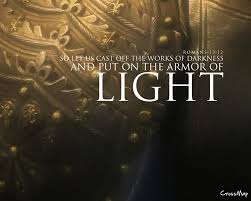
On the First Sunday of Advent the Collect urges us to “put on the armor of light in the time of this mortal life…”
Armors were familiar to everyone in the Roman Empire of the time, and St. Paul often made use of images referring to what soldiers wore to refer to the way Christians should be spiritually vested to defend themselves from the attacks of the evil and dark forces of the visible and invisible worlds.
The second reading for this Sunday is Paul’s letter to the Romans, chapter 13, verses 8 to 14, and in this excerpt of the letter the Apostle declares, referring to the times the converts to the New Way are living, “let us then lay aside the works of darkness and put on the armor of light.”
Paul refers to that time as “it is now the moment for you to wake from sleep.” Notice the use of now to refer to the precise moment to be aware of the need to make the radical change from a life lived in darkness to a life illuminated by Christ’s living light.
The now of Paul’s addressees in this letter may be chronologically far from our now, but Paul’s injunction to turn to the new life in Christ’s light and love is not bound by time; it is as essentially present today as it was then.
In the preceding paragraph of this letter Paul had clearly reaffirmed what is said in the Gospels about the commandment to love your neighbor. He says that all commandments are summed up in this word, “Love your neighbor as yourself.”
So when Paul talks about the armor of light, he is clearly referring to putting love of your neighbor into practice.
The way he exemplifies how this putting in the armor of light is translated into practice is this: “let us live honorably as in the day, not in reveling and drunkenness, not in debauchery and licentiousness, not in quarreling and jealousy.”
Living honorably implies living a life devoted to the love of God, which implies loving your neighbor as yourself, and not giving in to the selfish ways of self-complacency, which not only corrupt our bodies and minds, but make us self-centered and oblivious of (even sometimes contentious against) our fellow human beings.
At the end of this excerpt of the Letter to the Romans, Paul uses an image that sums up and brilliantly clarifies what he means by the armor of light.
He says, “put on the Lord Jesus Christ”.
Putting on our Lord as our vestment, putting on the Light of lights, the Love of loves. This is the total transformation of our lives into His life, the real turning to God, and the most powerful armor against all evil.
Fr. Carlos Expósito, Rector
|
RETURN TO TOP
|







































